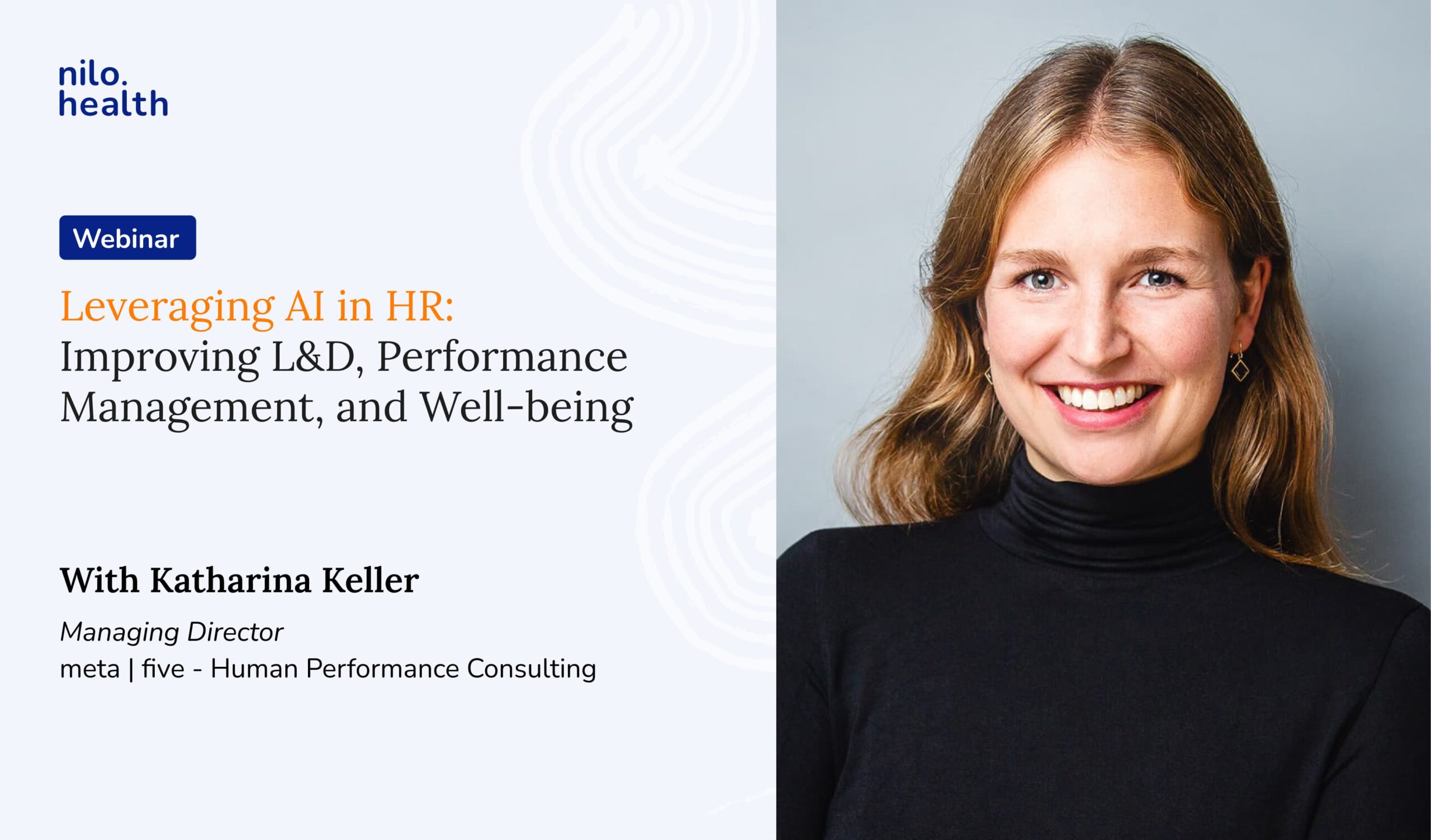Resources
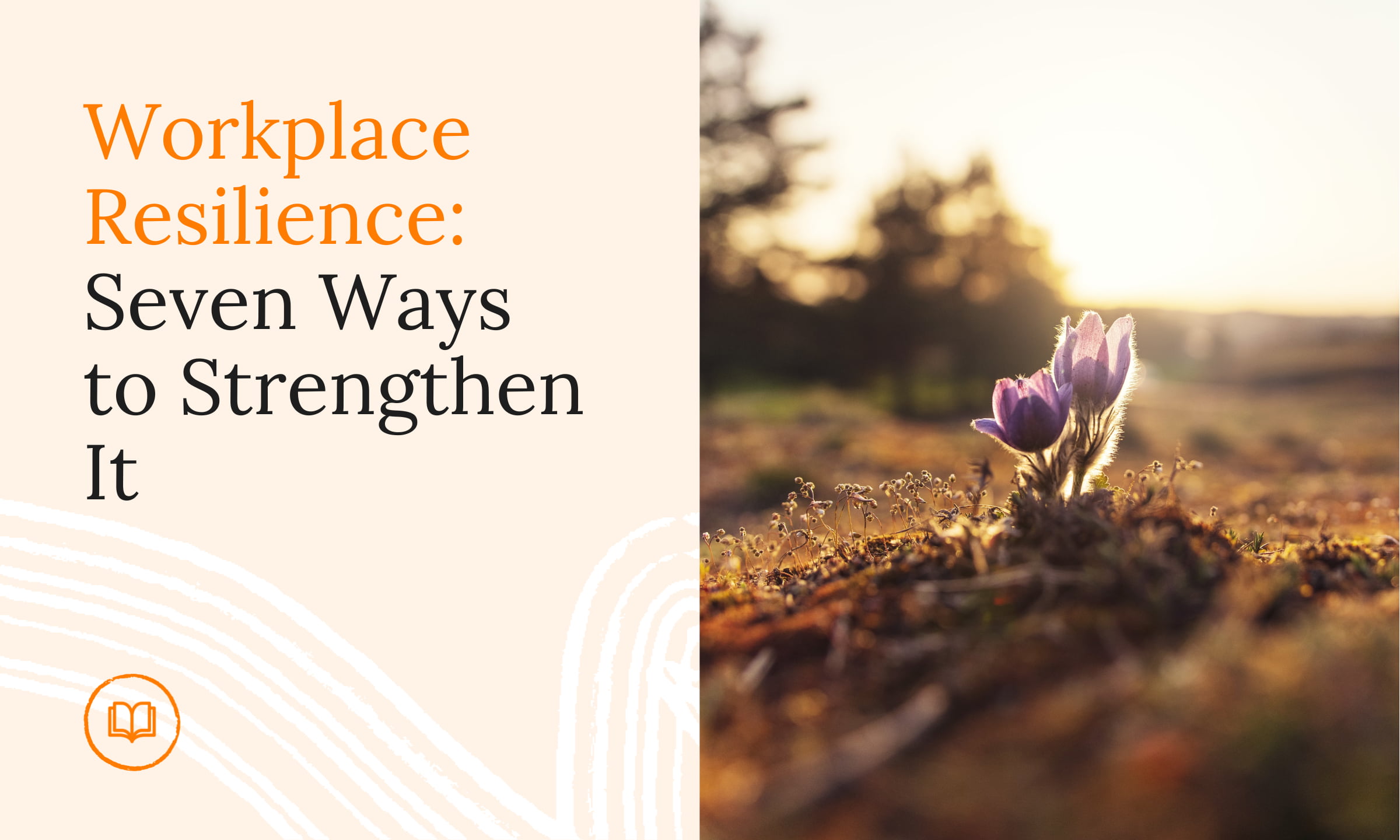
BlogCompany CultureStress & Burnout
Workplace Resilience: Seven Ways to Strengthen It
Workplace resilience is one of the leading metrics for business success. Here are seven ways how you can strengthen resilience in your team

BlogBlogMitarbeitergesundheit
Psychische Gefährdungsbeurteilung (GB Psych): Anforderungen, Ablauf & Maßnahmen
Die psychische Gefährdungsbeurteilung ist eine nachhaltige Investition in die Gesundheit der Mitarbeitenden. Aber was steckt eigentlich…

Blog
Breaking News: Announcing the nilo.health & Likeminded Merger
We have big news. Read all about our new merger with Likeminded as we become a market leader in the DACH region.
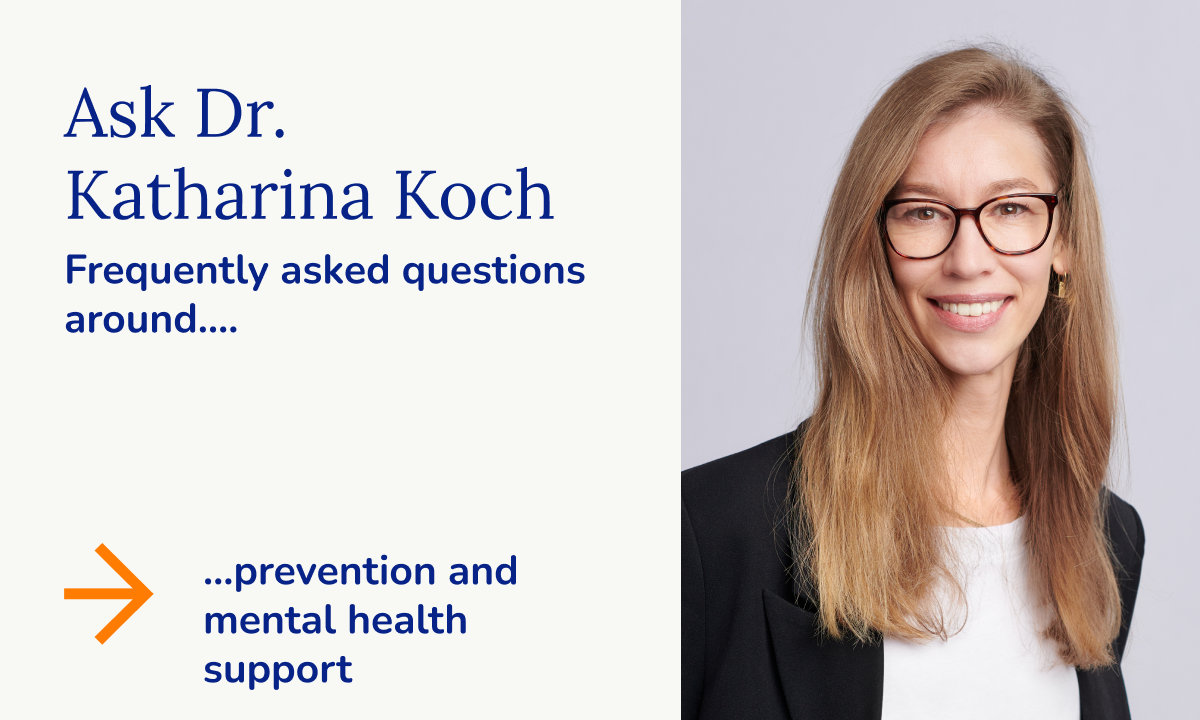
Ask Dr. Katharina KochBlog
Ask Dr. Katharina Koch: 3 questions around preventative mental health care
Everything you need to know about HR’s mental health – from an expert. Join us in our series with Dr. Katharina Koch, a Clinical…
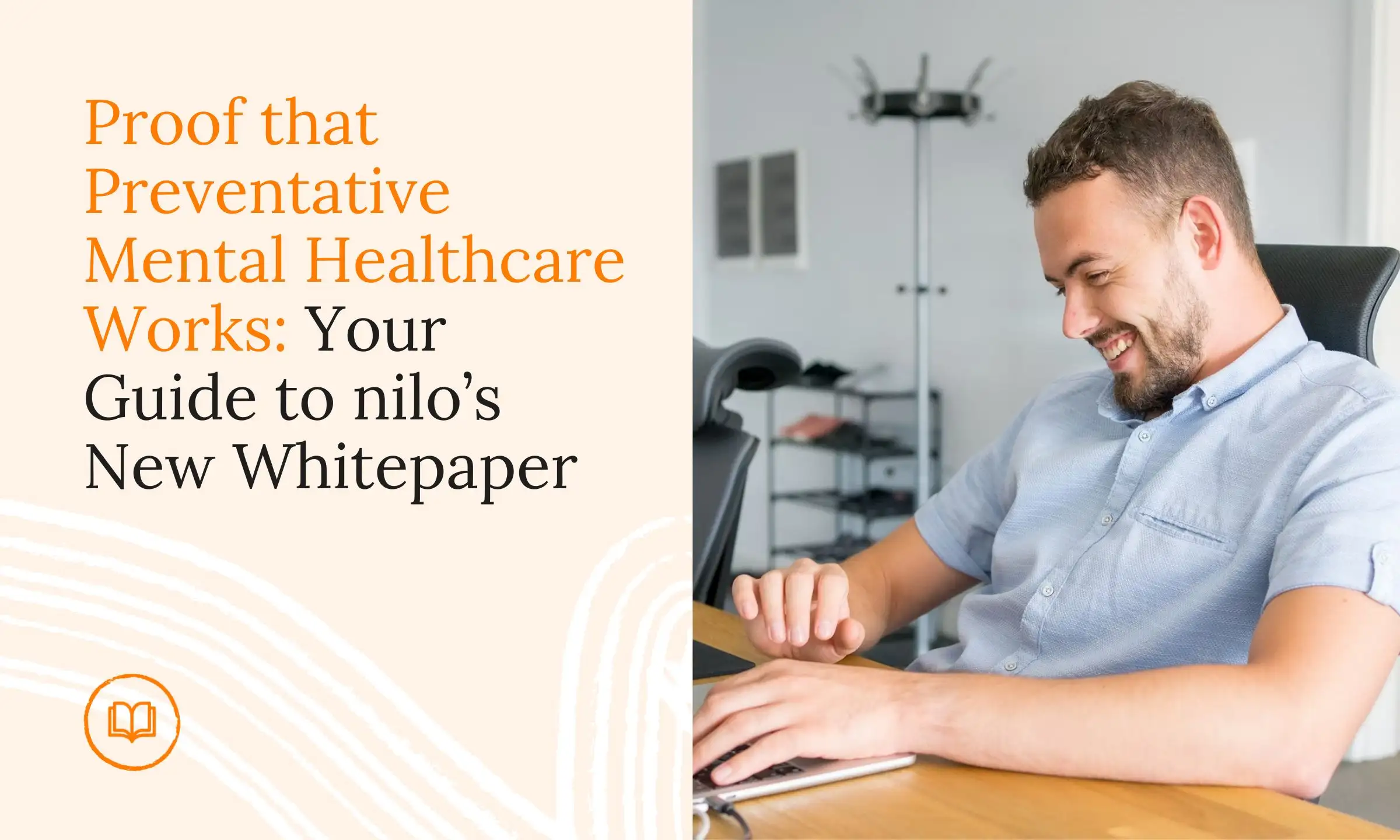
BlogEmployee Benefits
Proof that Preventative Mental Healthcare Works: Your Guide to nilo’s New Whitepaper
Our latest whitepaper offers proof that preventative mental health support works – let us break down the data for you!

BlogLeadership
Empathic Leadership and Mental Health: How Managers Stay Successful With EAP Support
Empathische Führung ist entscheidend für die mentale Gesundheit von Mitarbeitenden und Führungskräften. Äußere Einflüsse wie…
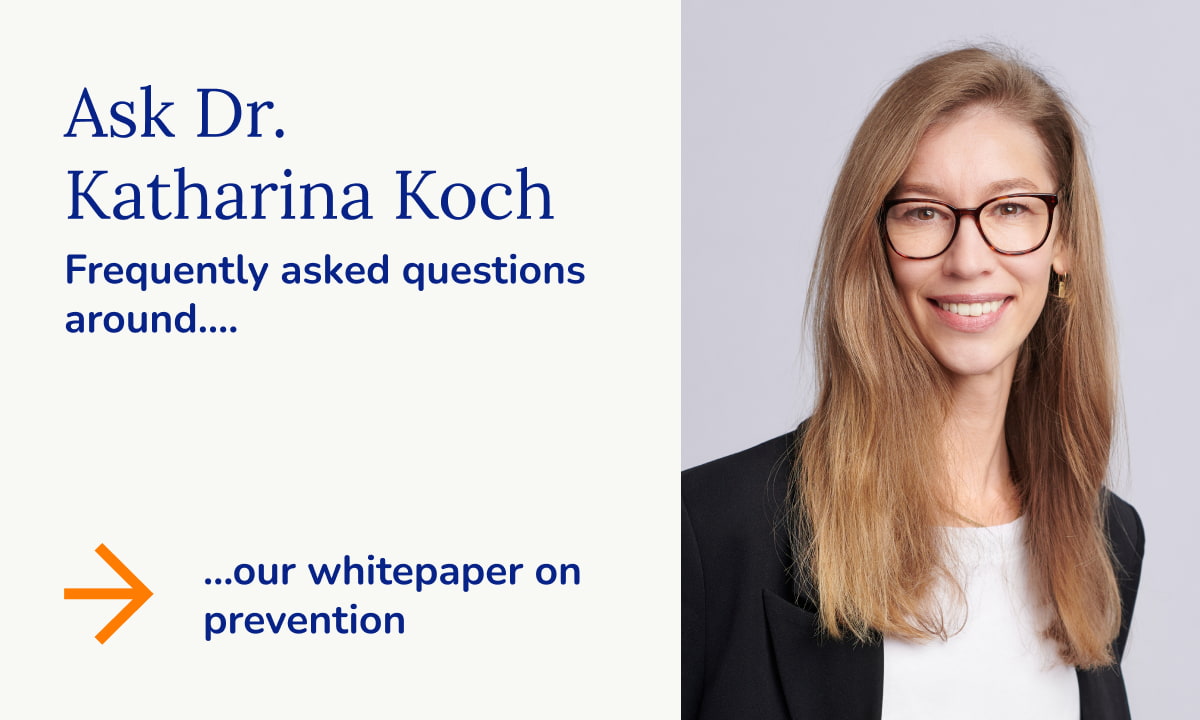
Ask Dr. Katharina KochBlog
Ask Dr. Katharina Koch: Everything you want to know about our new whitepaper on prevention
Everything you need to know about HR’s mental health – from an expert. Join us in our series with Dr. Katharina Koch, a Clinical…
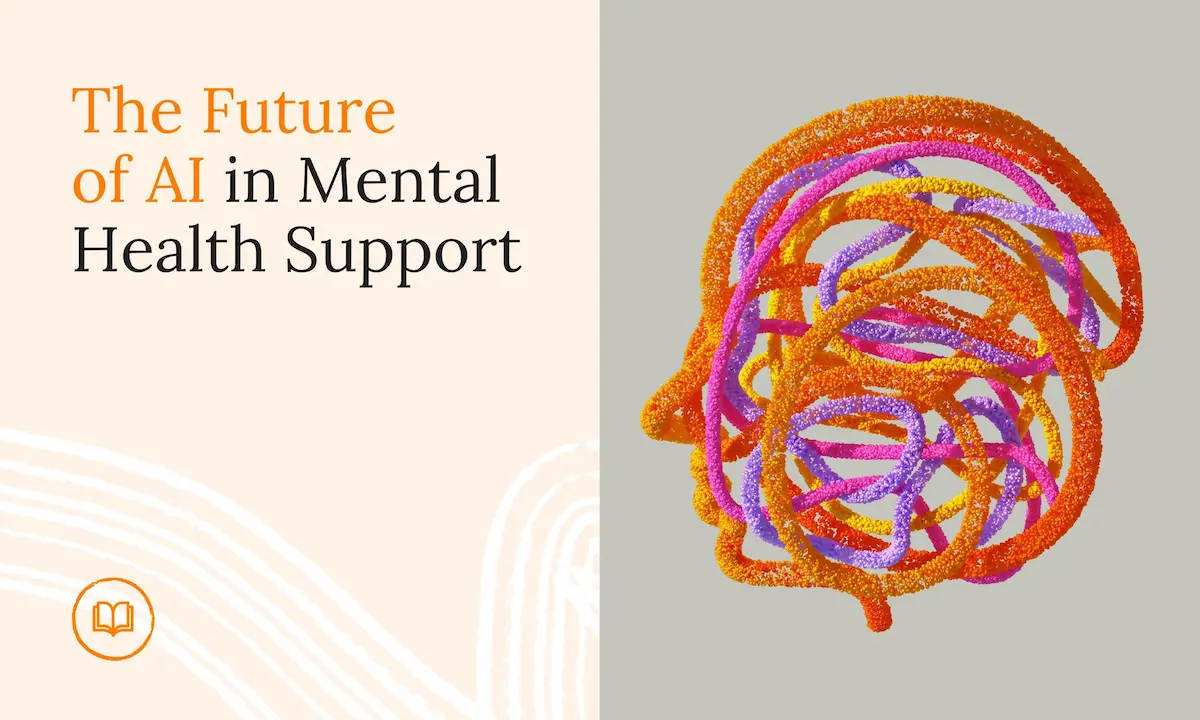
BlogEmployee Benefits
The Future of AI in Mental Health Support
AI is everywhere — including in mental health support. How will AI affect our industry, for good and bad? Let’s find out.

Ask Dr. Katharina KochBlog
Ask Dr. Katharina Koch: Everything you want to know about AI in mental health care
Everything you need to know about HR’s mental health – from an expert. Join us in our series with Dr. Katharina Koch, a Clinical…
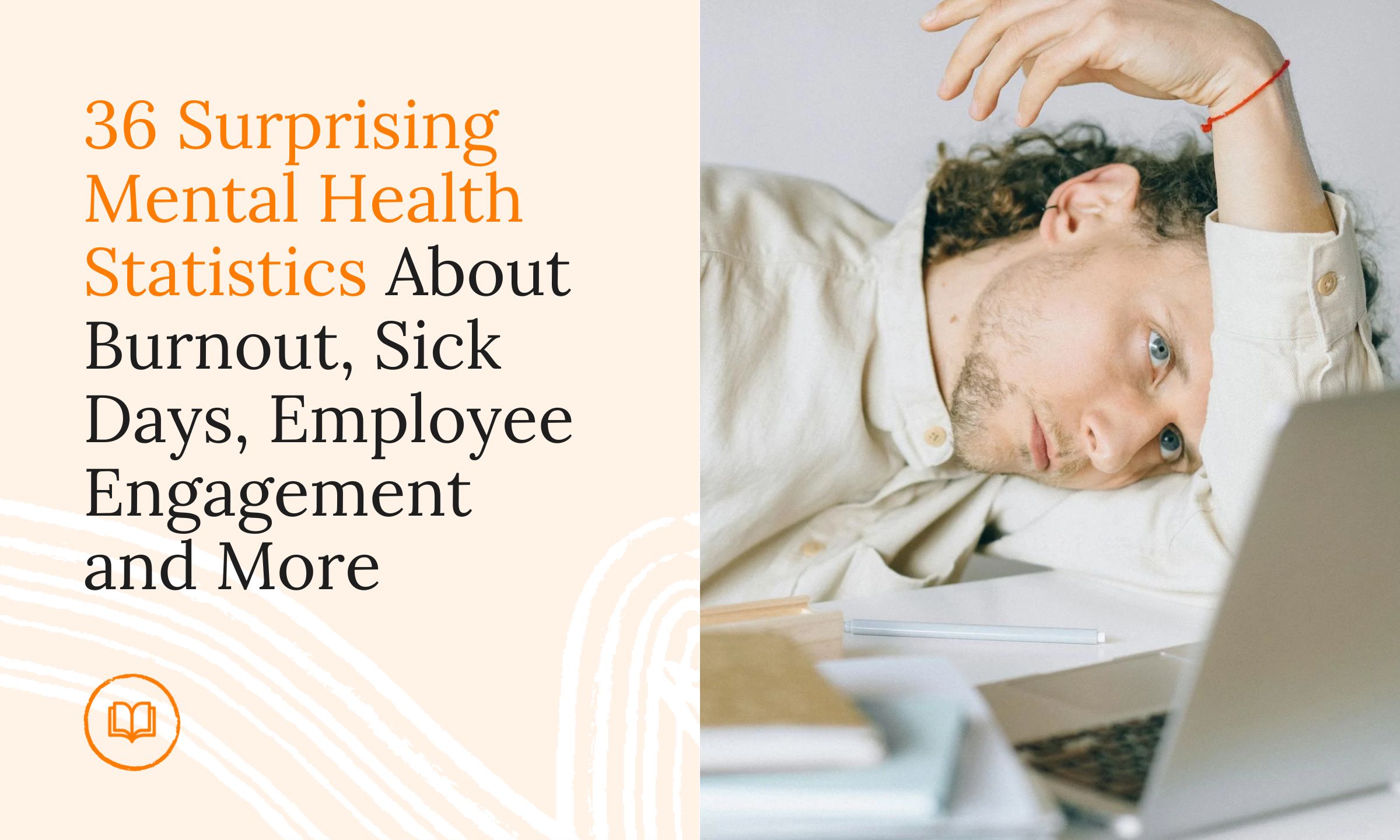
Attract & Retain TalentBlogEmployee BenefitsStress & Burnout
36 Surprising Mental Health Statistics About Burnout, Sick Days, Employee Engagement and More
Mental health is crucial to productive, healthy company cultures, and mental health statistics prove empirically just how crucial it is.
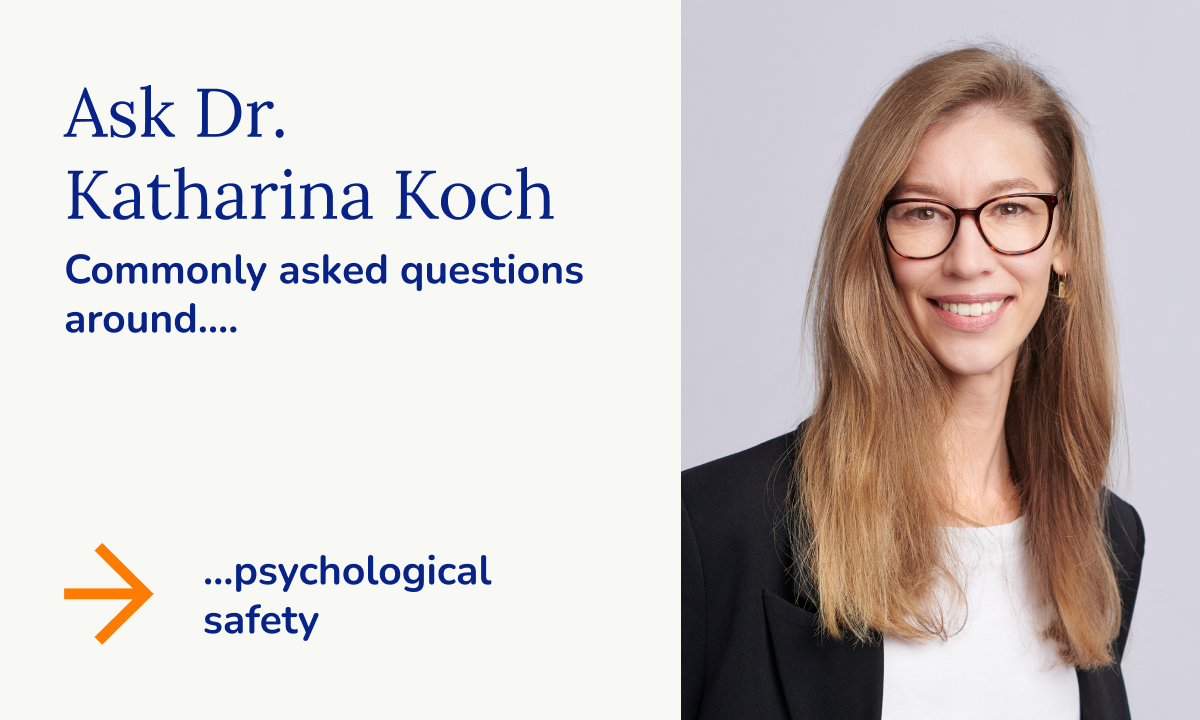
Ask Dr. Katharina KochBlog
Ask Dr. Katharina Koch: Why is psychological safety important? And other popular questions.
Everything you need to know about HR’s mental health – from an expert. Join us in our series with Dr. Katharina Koch, a Clinical…

Attract & Retain TalentBlog
Everything You Need to Know About Attracting and Retaining Talent
In HR, attracting and retaining talent isn’t just crucial – it’s a core part of your business! Find all your answers to your questions…
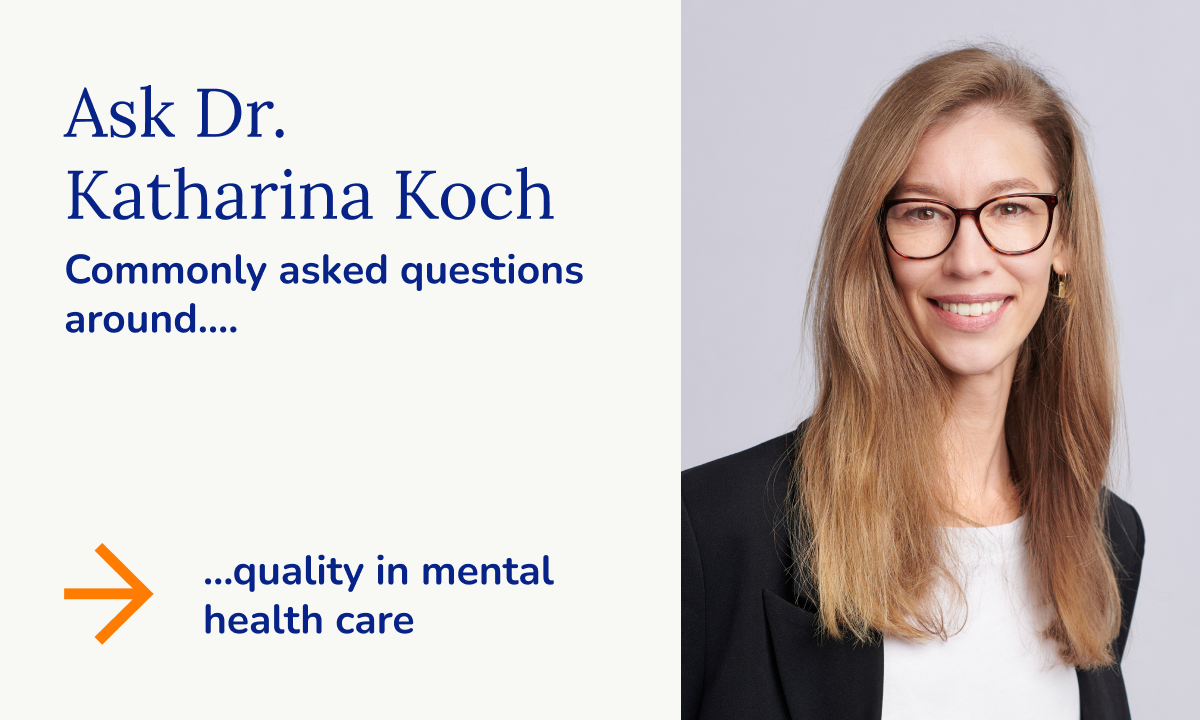
Ask Dr. Katharina KochBlog
Ask Dr. Katharina Koch: Why is quality important when I choose a mental health provider – and how do I spot quality?
Everything you need to know about HR’s mental health – from an expert. Join us in our series with Dr. Katharina Koch, a Clinical…
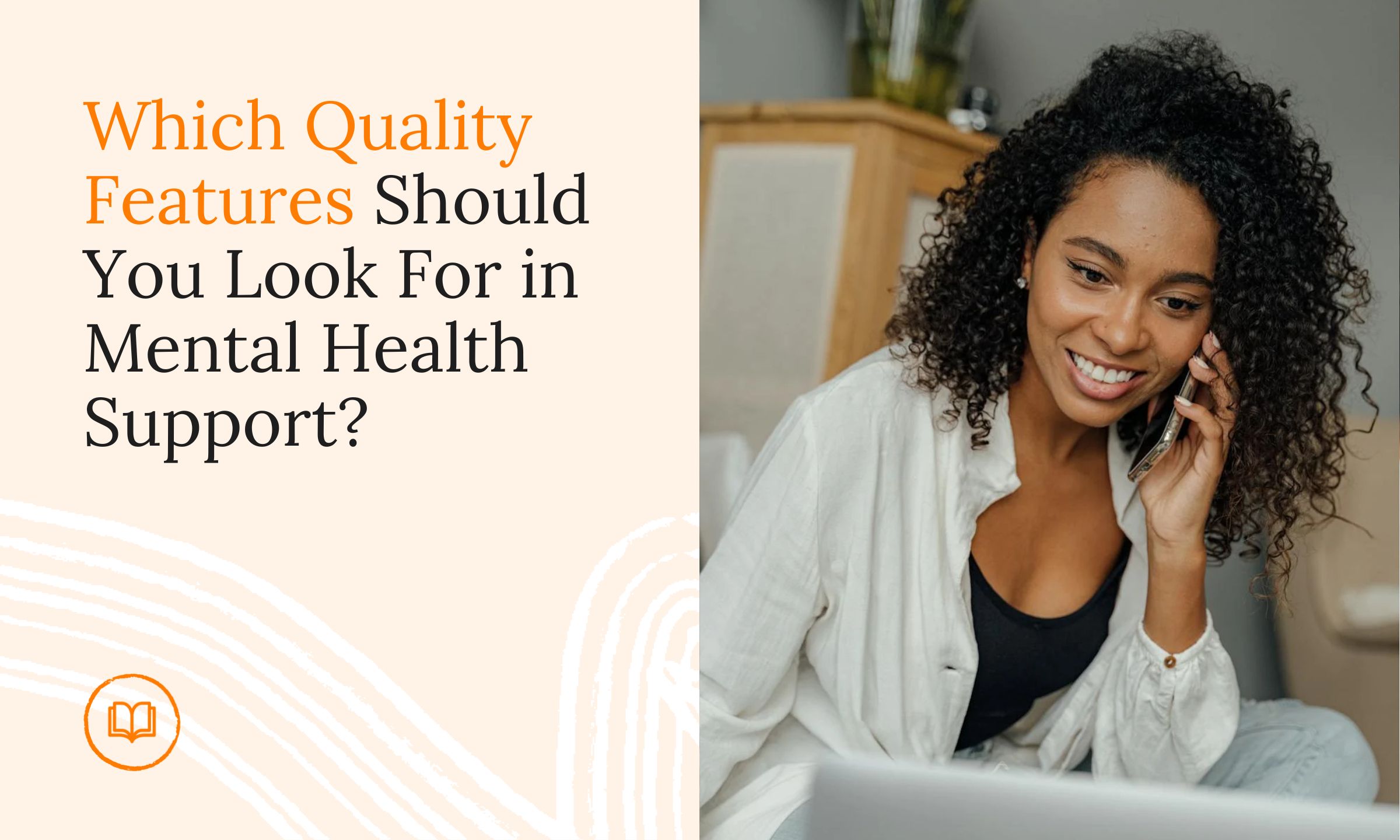
BlogEmployee Benefits
7 Quality Features To Look For in Mental Health Support
Providing impactful mental health support means looking for quality features for your team. In this article, we break down what you need!

BlogLeadership
7 Things Leaders Don’t Know About Mental Health… But Should
Leaders have a lot to handle when it comes to mental health. Here are seven of the most important things to know.
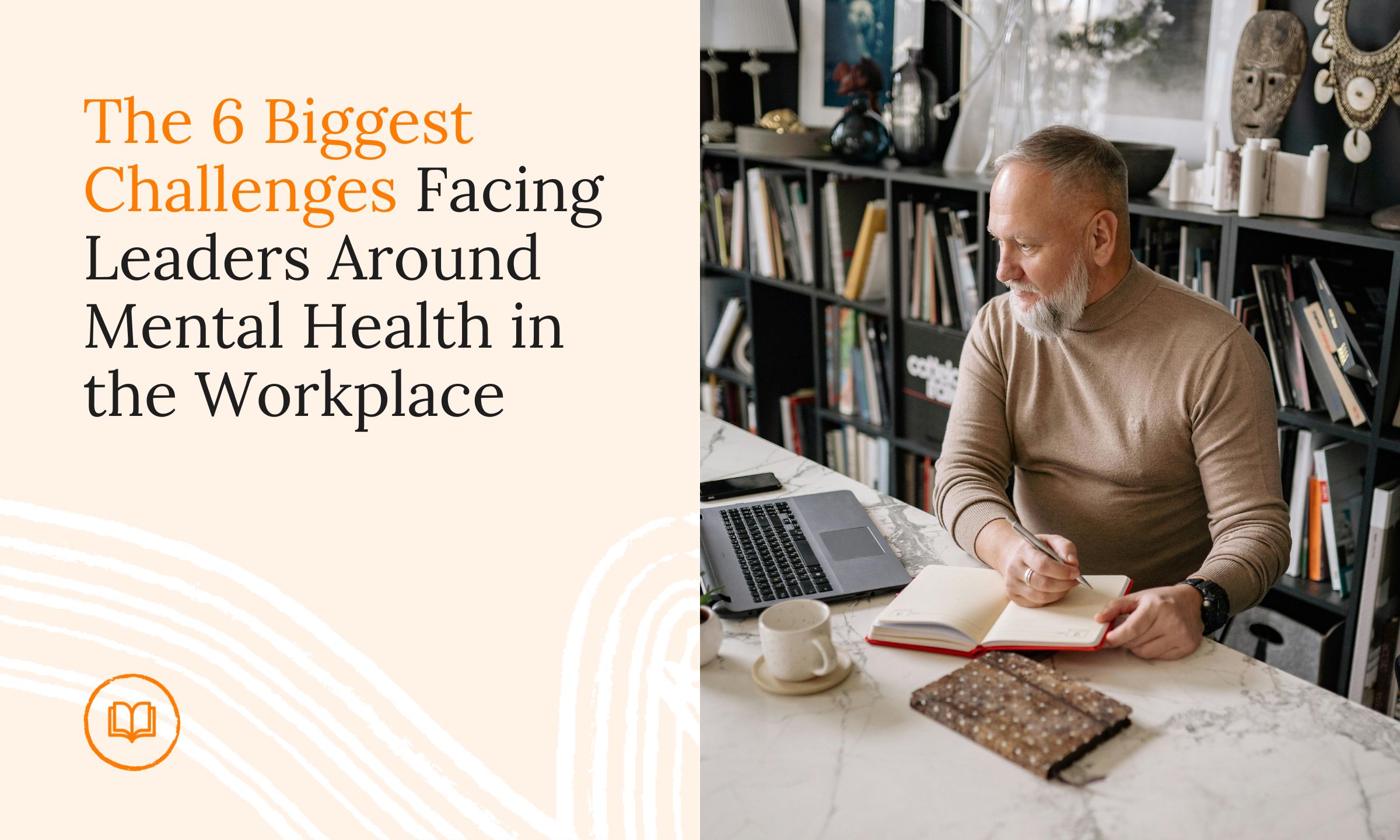
BlogLeadership
The Six Biggest Challenges Facing Leaders Around Mental Health in the Workplace
Explore the biggest challenges around mental health facing leaders – and strategies you can use to tackle them.
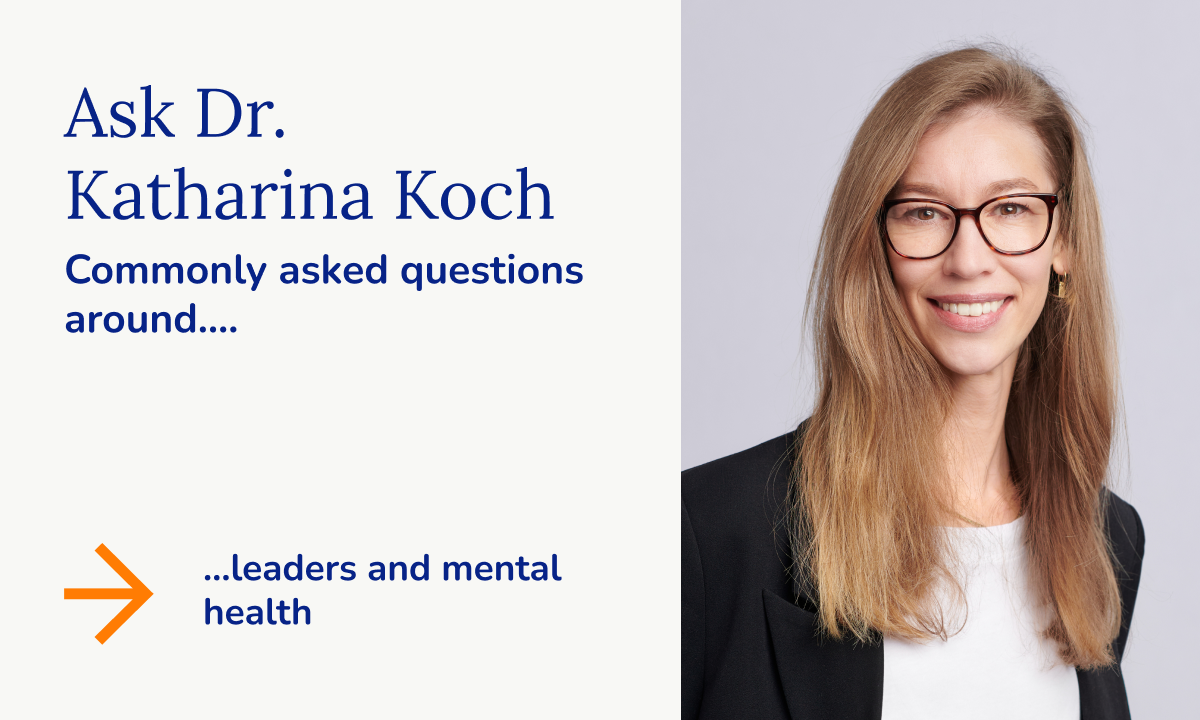
Ask Dr. Katharina KochBlog
Ask Dr. Katharina Koch: How can leaders deal with complicated issues like mental health?
Everything you need to know about HR’s mental health – from an expert. Join us in our series with Dr. Katharina Koch, a Clinical…

Attract & Retain TalentBlog
7 Effective Talent Attraction Strategies for HR
For talent attraction in the modern workforce, you need a modern, multi-faceted approach to ensuring your company attracts the best talent.
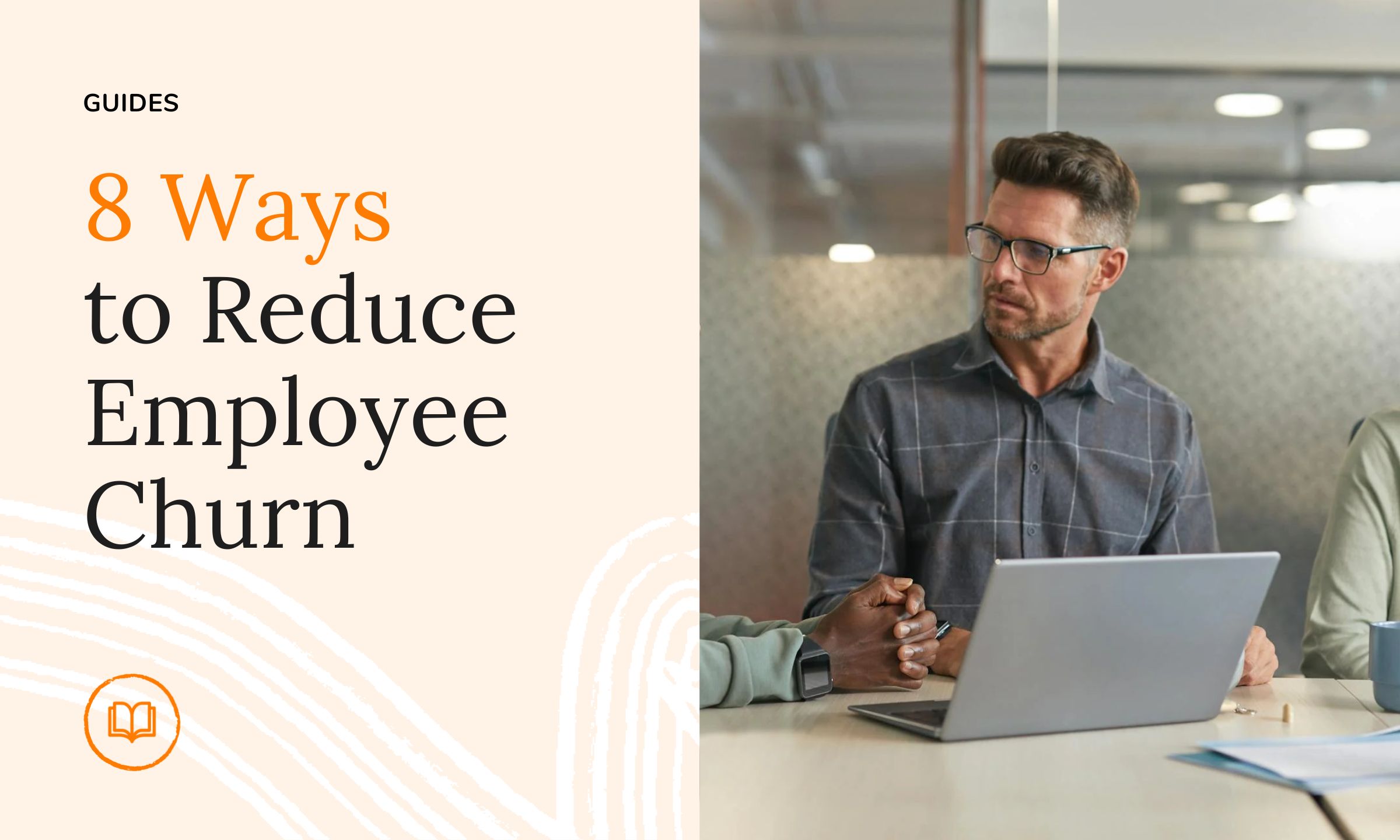
Attract & Retain TalentBlog
8 Ways to Reduce Employee Churn
If you’re looking to reduce employee churn in your organization, here’s the guide for you! Eight strategies to keep your best employees.
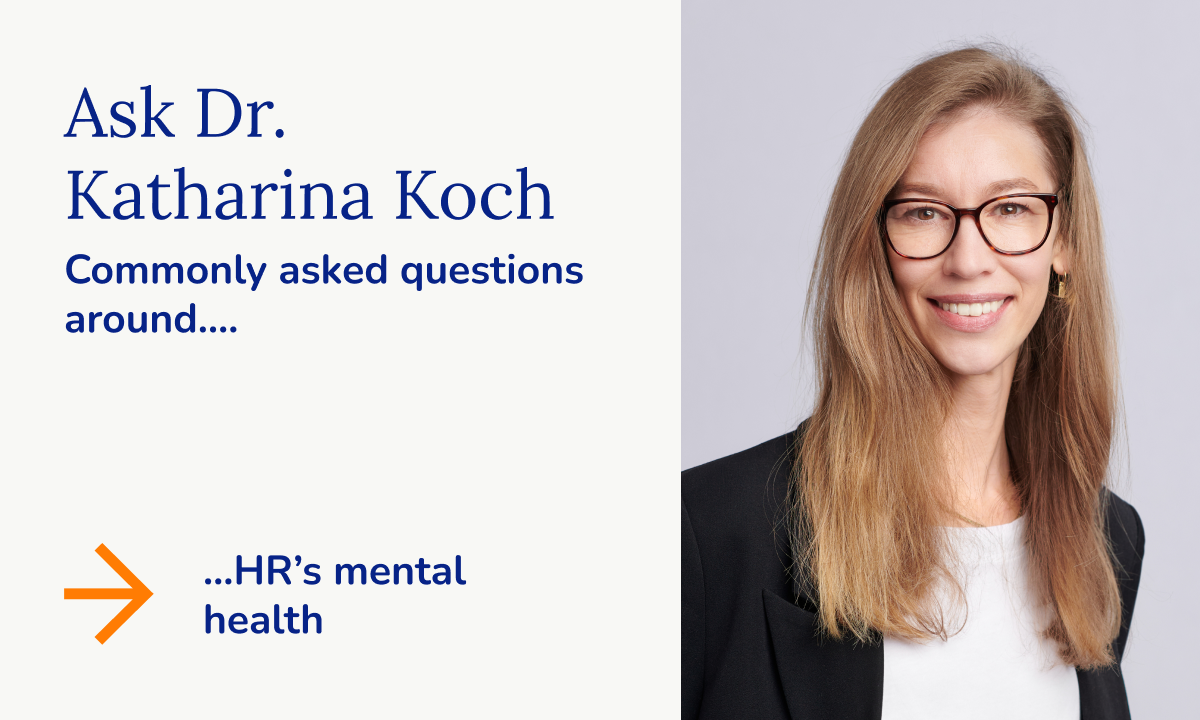
Ask Dr. Katharina KochBlog
Ask Dr. Katharina Koch: How Can HR Leads And Managers Take Care of Their Own Mental Health?
Everything you need to know about HR’s mental health – from an expert. Join us in our series with Dr. Katharina Koch, a Clinical…
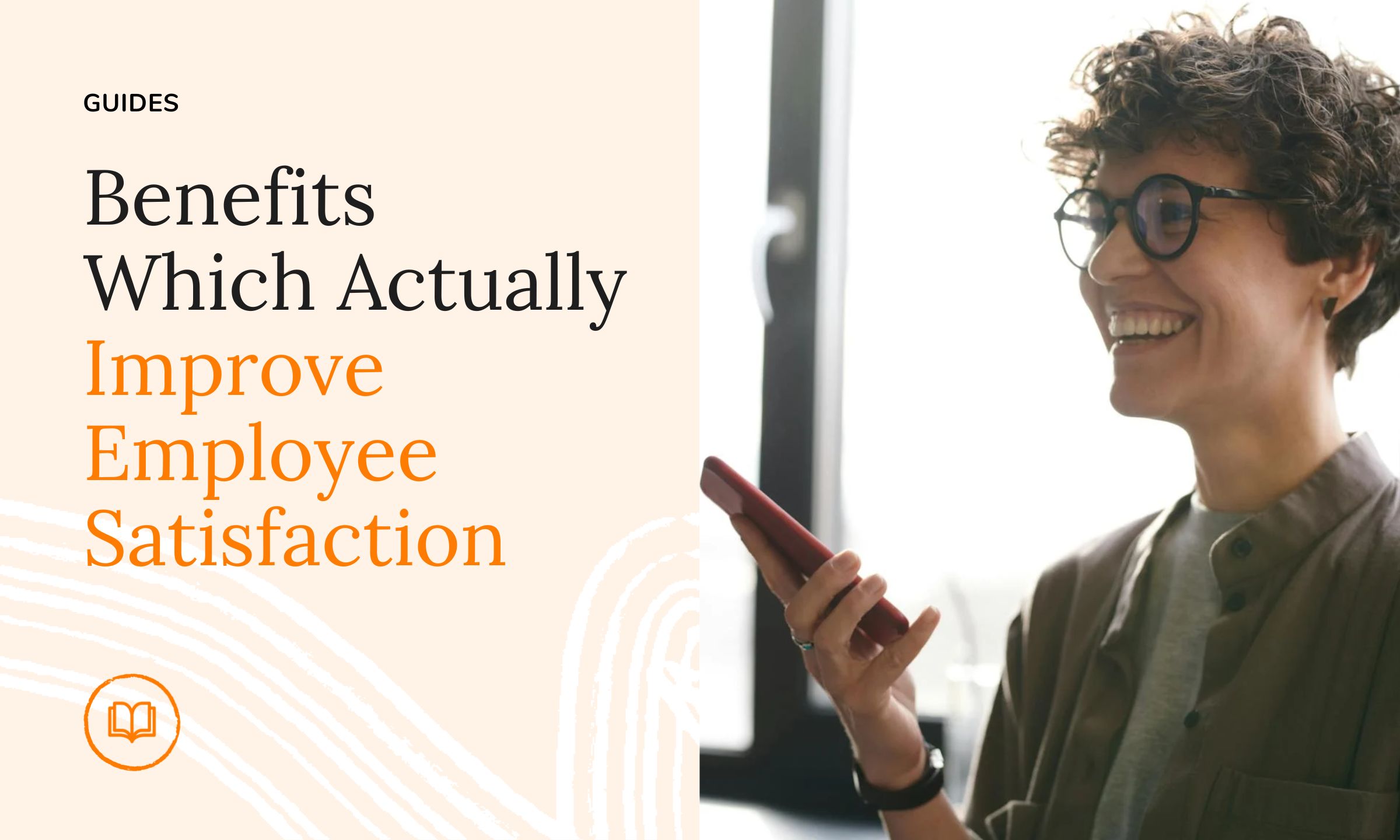
Attract & Retain TalentBlog
7 Benefits Which Actually Improve Employee Satisfaction
Decide here which employee benefits make a positive impact on your team and can help improve employee satisfaction at your company.
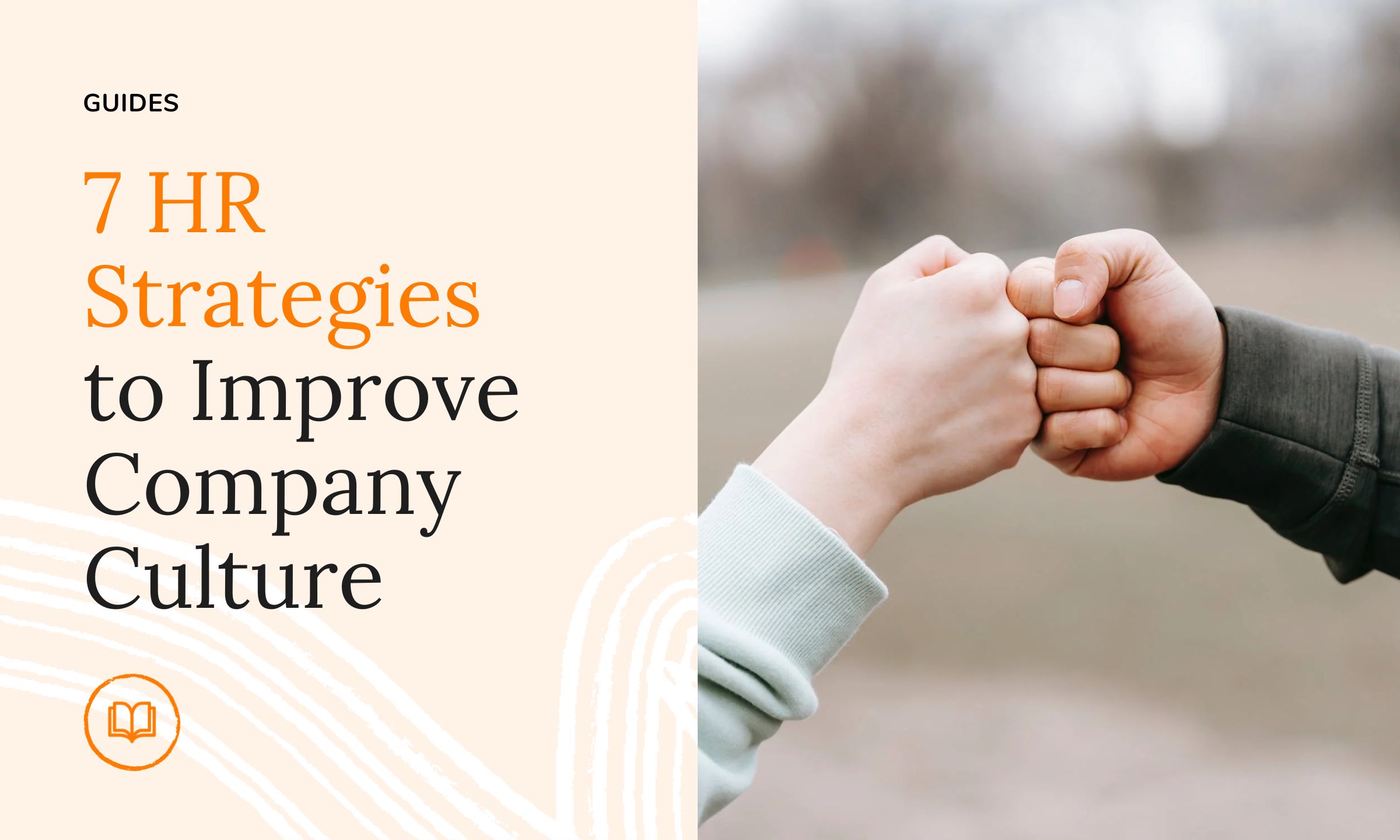
BlogCompany Culture
7 HR Strategies to Improve Company Culture
There’s no one who has more capacity to shape, boost and improve company culture than HR. Here are seven innovative ways to start!
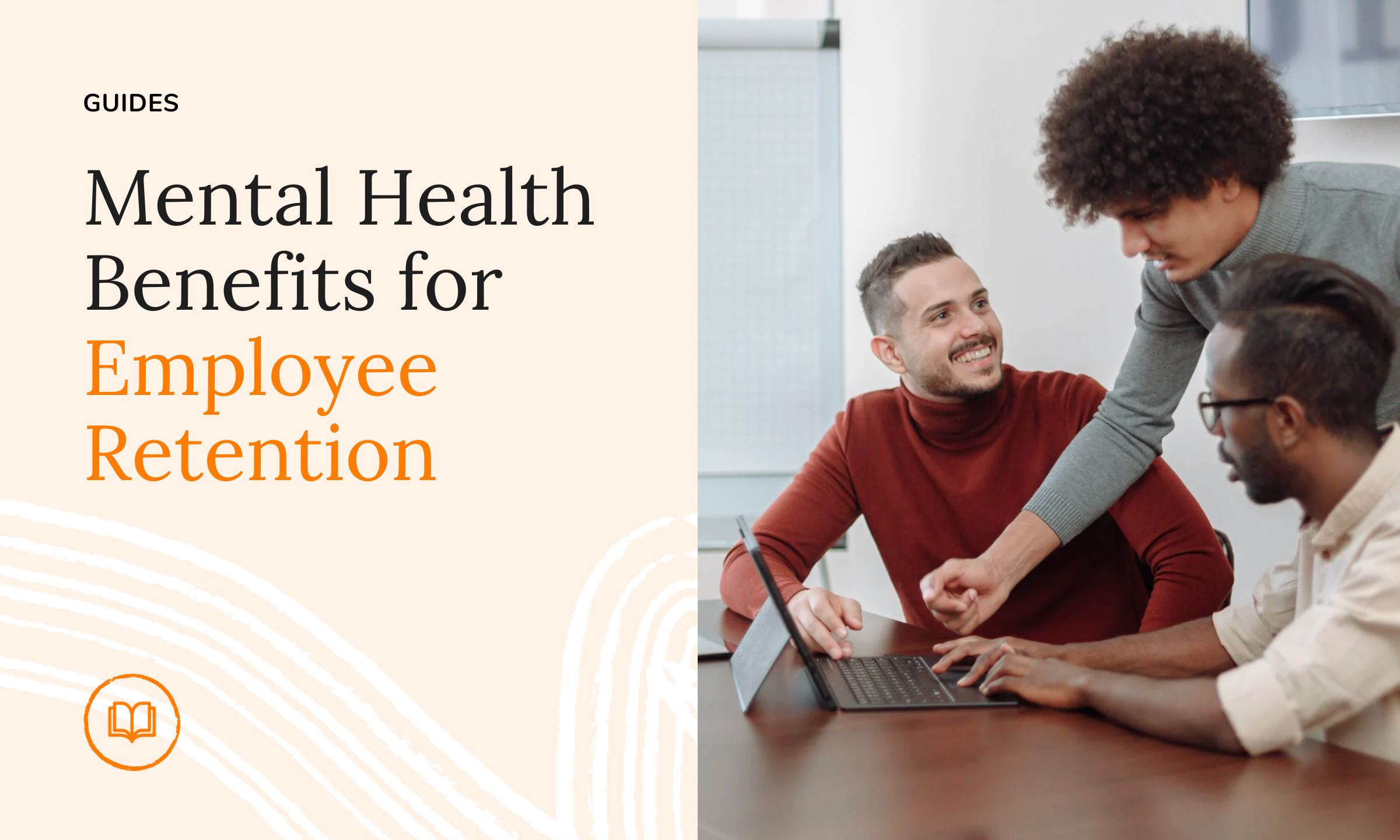
Attract & Retain TalentBlog
Mental Health Benefits for Employee Retention
Investing in mental health benefits significantly boosts employee retention rates and ultimately enhances overall productivity and success.
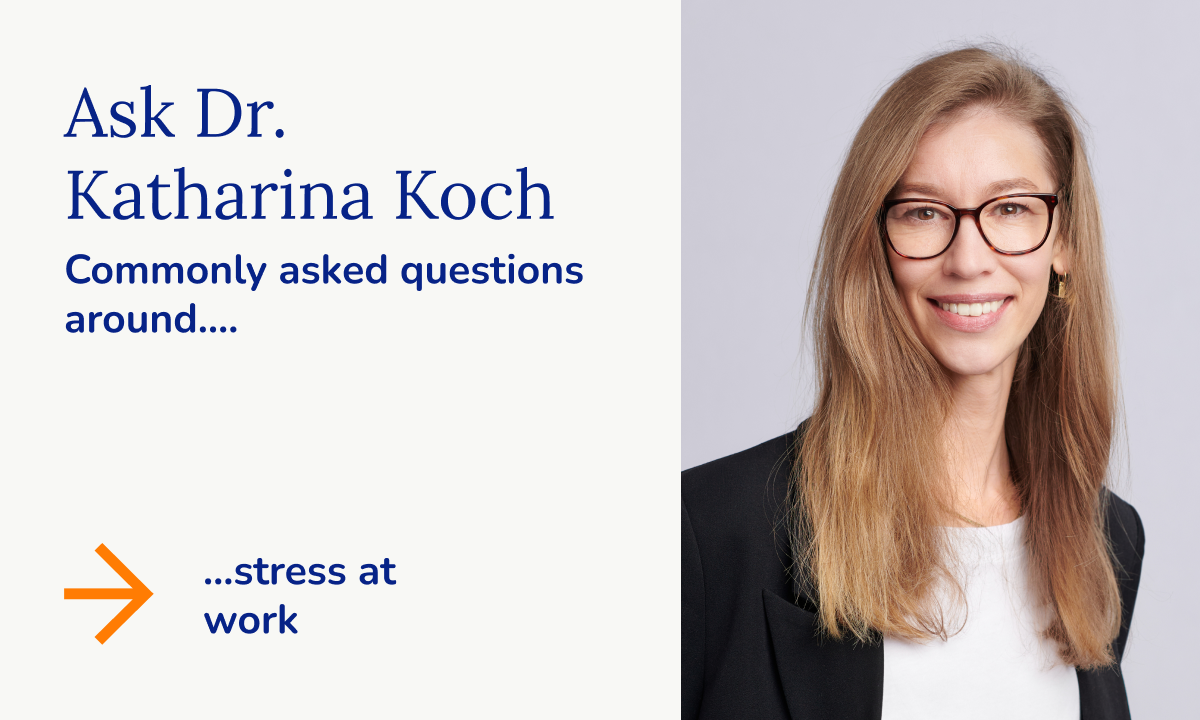
Ask Dr. Katharina KochBlogStress & Burnout
Ask Dr. Katharina Koch: Frequently asked questions around stress at work
Everything you need to know about stress at work – from an expert. Join us in our series with Dr. Katharina Koch, a Clinical Psychologist…

BlogDiversity Inclusion & Equitynilo Psychologists
Why Do So Many People Prefer a Female Psychologist?
nilo.health data proves what many of us may instinctively feel: most people prefer a female psychologist. Let’s explore why!
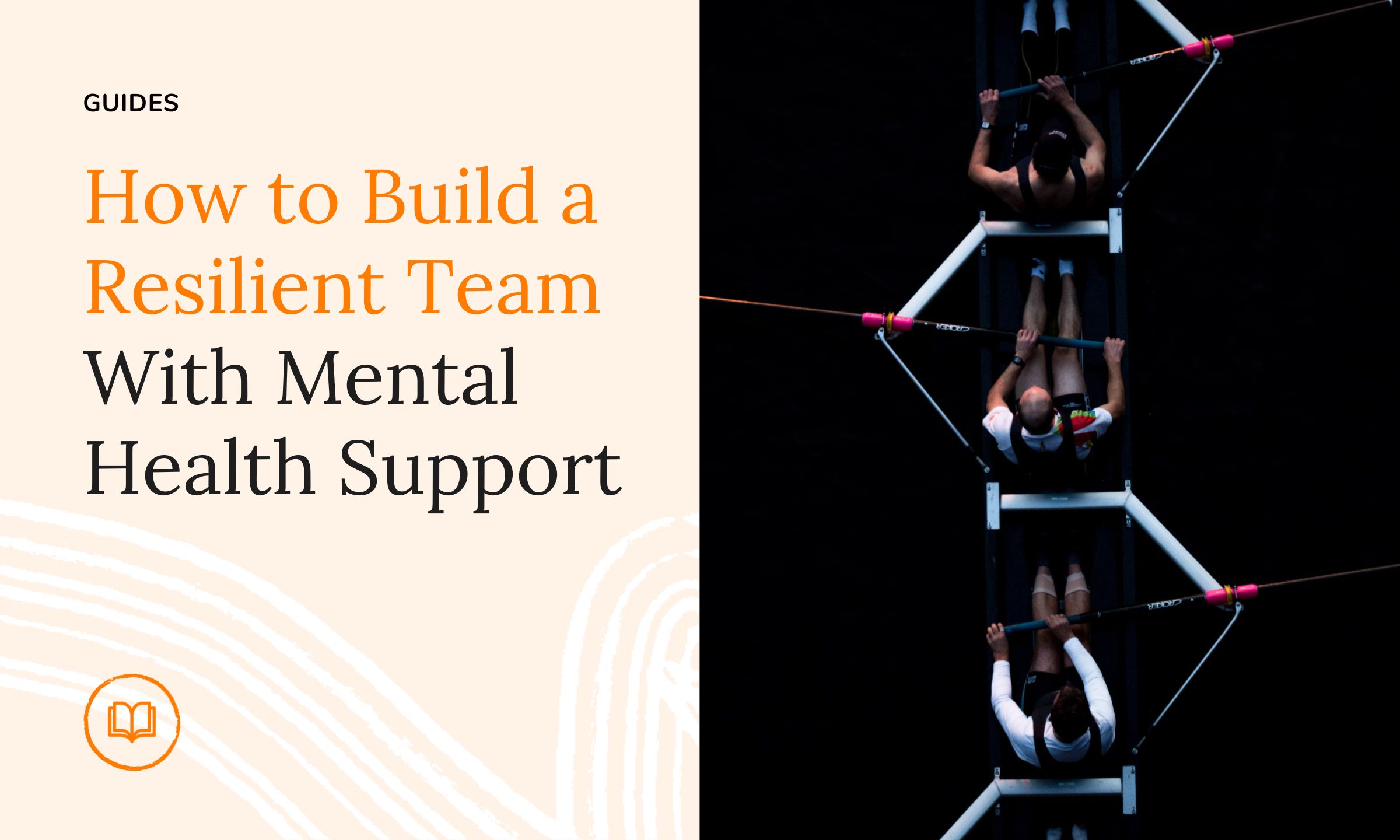
BlogEmployee Health
How to Build a Resilient Team With Mental Health Support
One of the key strategies for company success is to build a resilient team. Here’s how to use mental health support to do so!
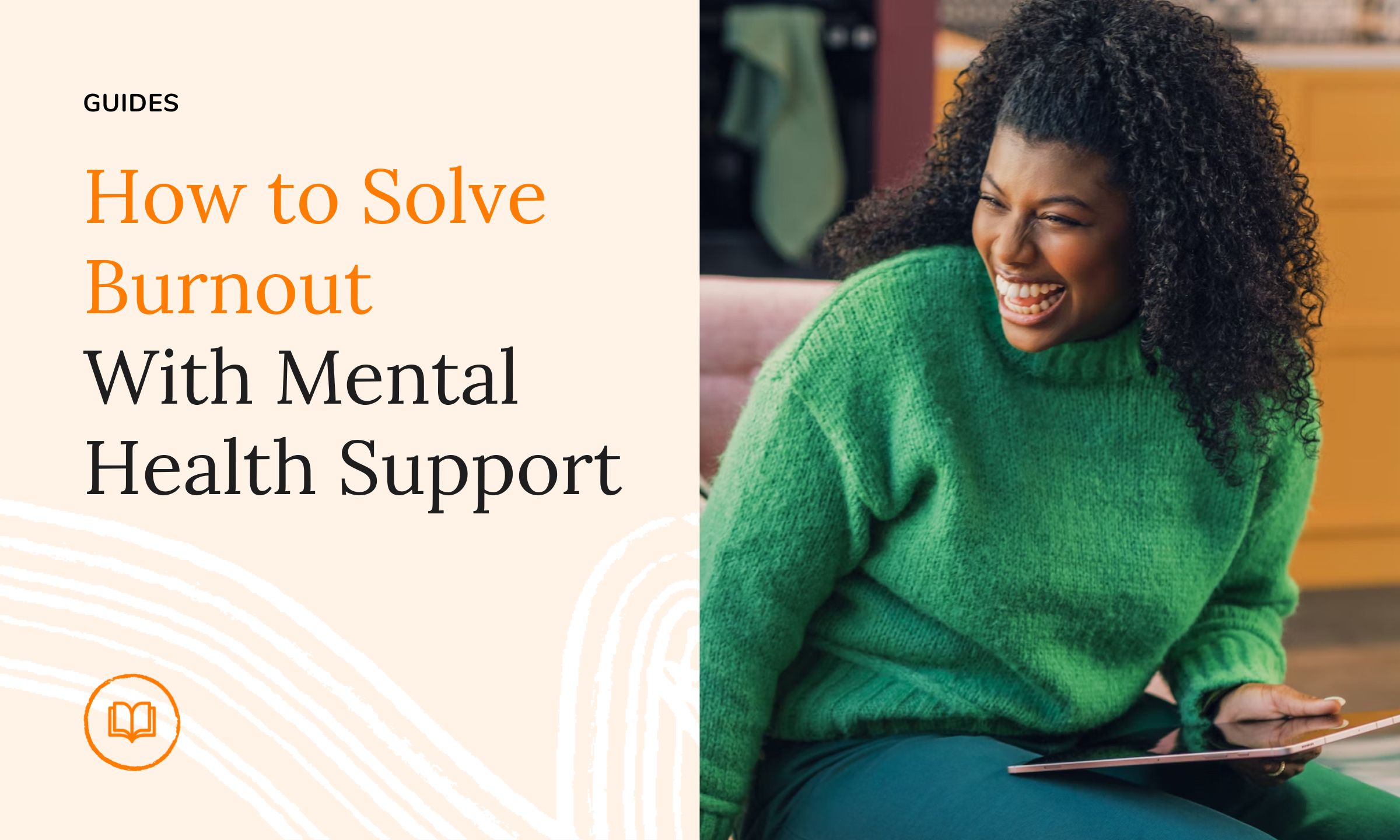
BlogStress & Burnout
How to Solve Burnout With Mental Health Support
Burnout is a crisis facing the modern workplace. But implementing mental health support to solve burnout shows massive success rates.
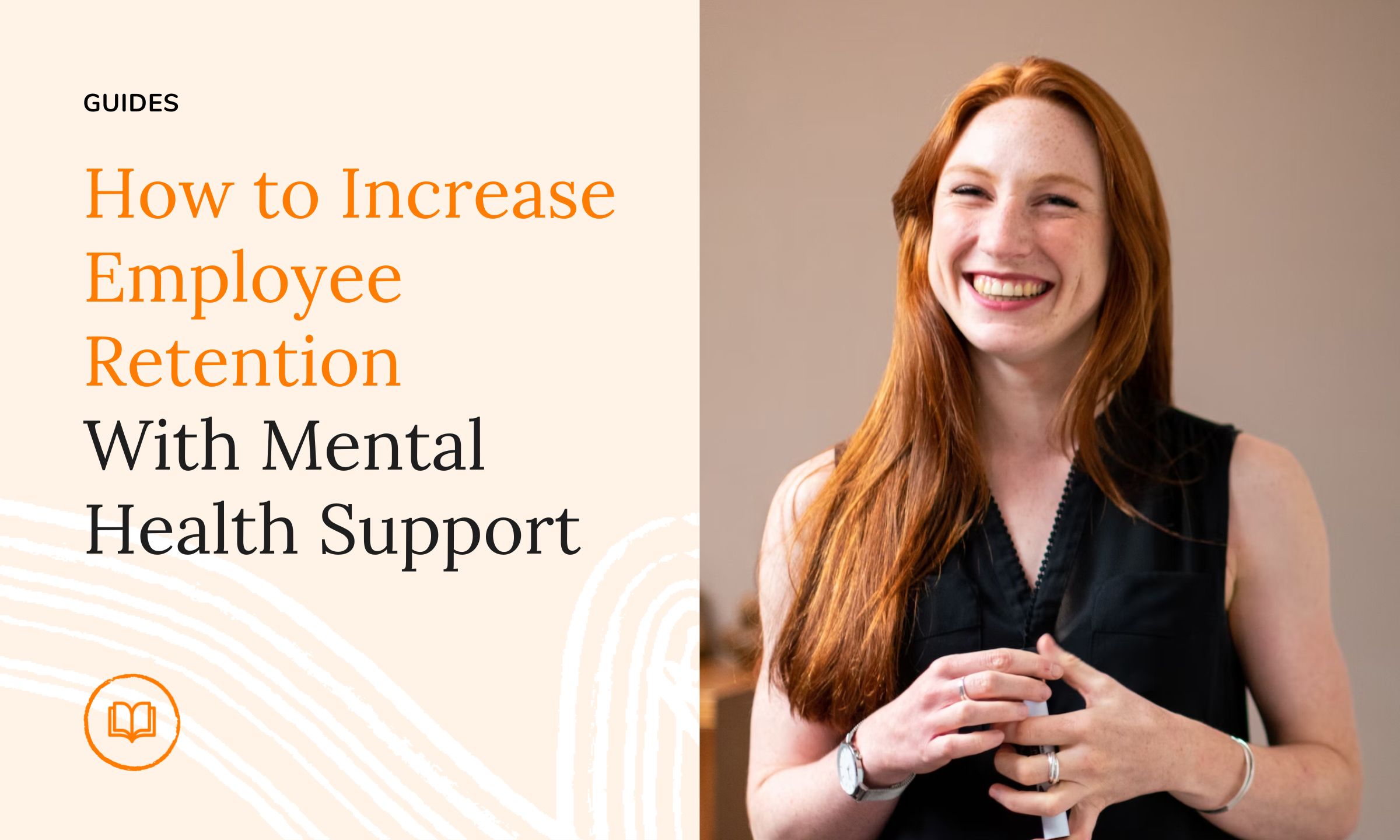
Attract & Retain TalentBlog
How to Increase Employee Retention With Mental Health Support
Replacing an employee is expensive and demotivating. Learn how to increase employee retention with mental health support!
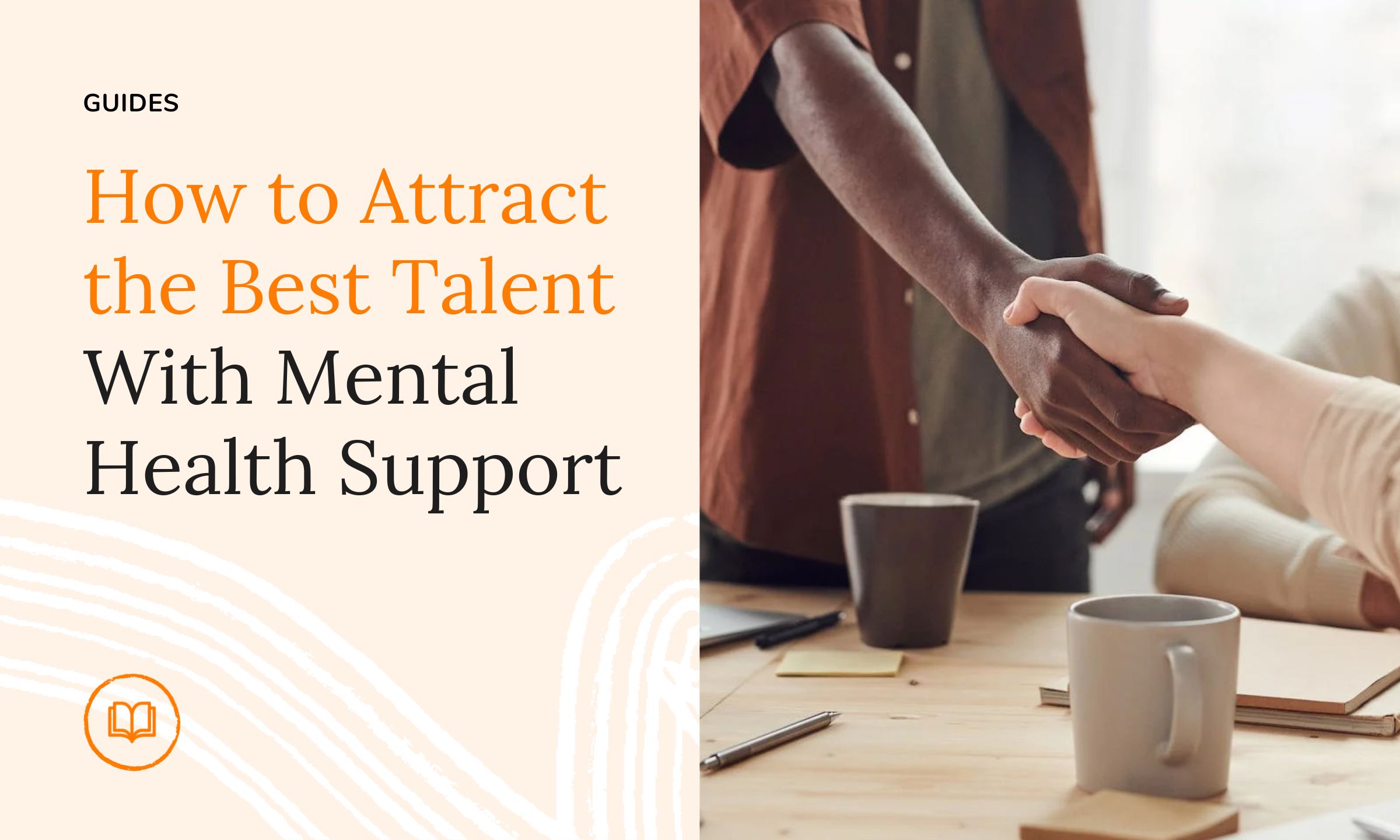
Attract & Retain TalentBlog
How to Attract the Best Talent With Mental Health Support
Mental health support is a crucial measure to attract the best talent. Find out everything you need to know!

Blognilo Psychologists
In the Spotlight: nilo psychologist Zacharia
Meet nilo psychologist Zacharia as they discuss the importance of early intervention and an empathetic workplace culture.
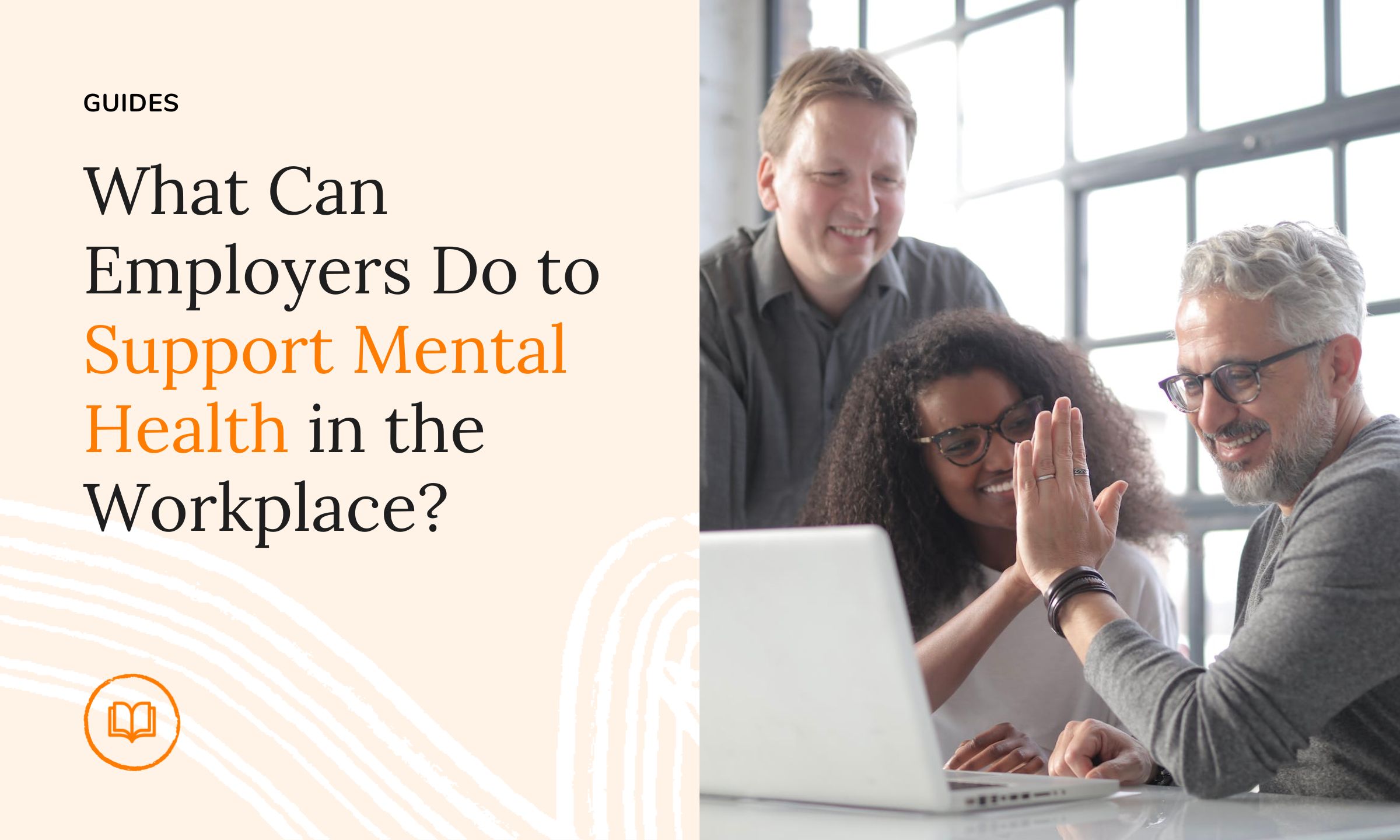
BlogEmployee HealthLeadership
What Can Employers Do to Support Mental Health in the Workplace?
There is a growing need for employers to take proactive steps to support the mental health of their workforce: read actionable tips here.

Blognilo Psychologists
In the spotlight: nilo psychologist Julia
Meet nilo psychologist Julia and learn about her exciting and actionable ideas for how leadership can start the mental health movement.
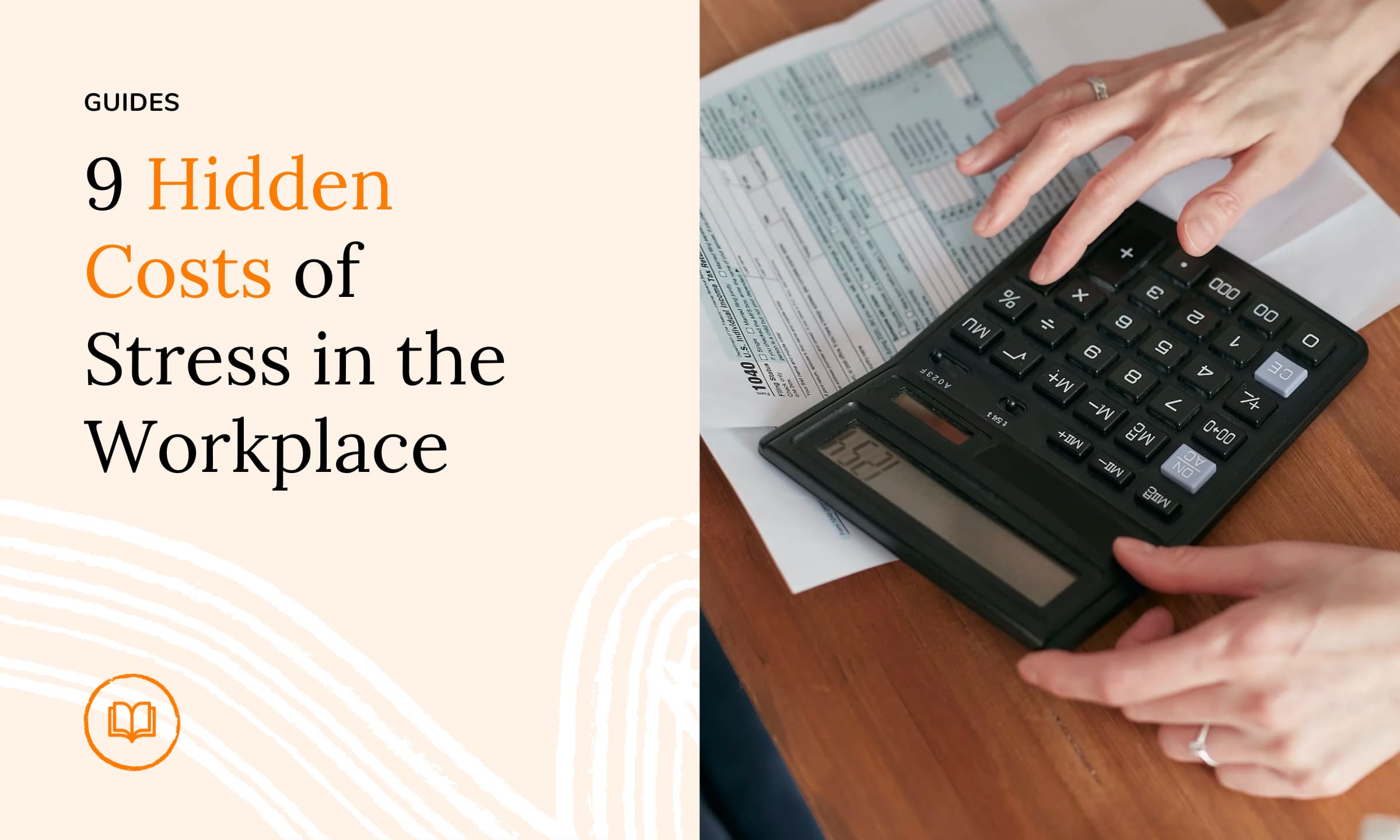
BlogStress & Burnout
9 Hidden Costs of Stress in the Workplace
In this article, we’ll delve into the hidden costs of workplace stress and explore strategies and tools to combat stress.

Blognilo Psychologists
In the spotlight: nilo psychologist Edwin
Meet nilo psychologist Edwin, and learn from his expert experience working with companies and individuals to improve mental health at work.

BlogLeadershipStress & Burnout
The Role of Leadership: Creating a Positive and Stress-Resistant Work Culture
For modern leadership, the significance of a positive and stress-resistant work culture cannot be overstated.

Blognilo Psychologists
In the Spotlight: nilo psychologist Flavia
Meet nilo psychologist Flavia, and learn from her expert experience working with companies and individuals to improve mental health at work.
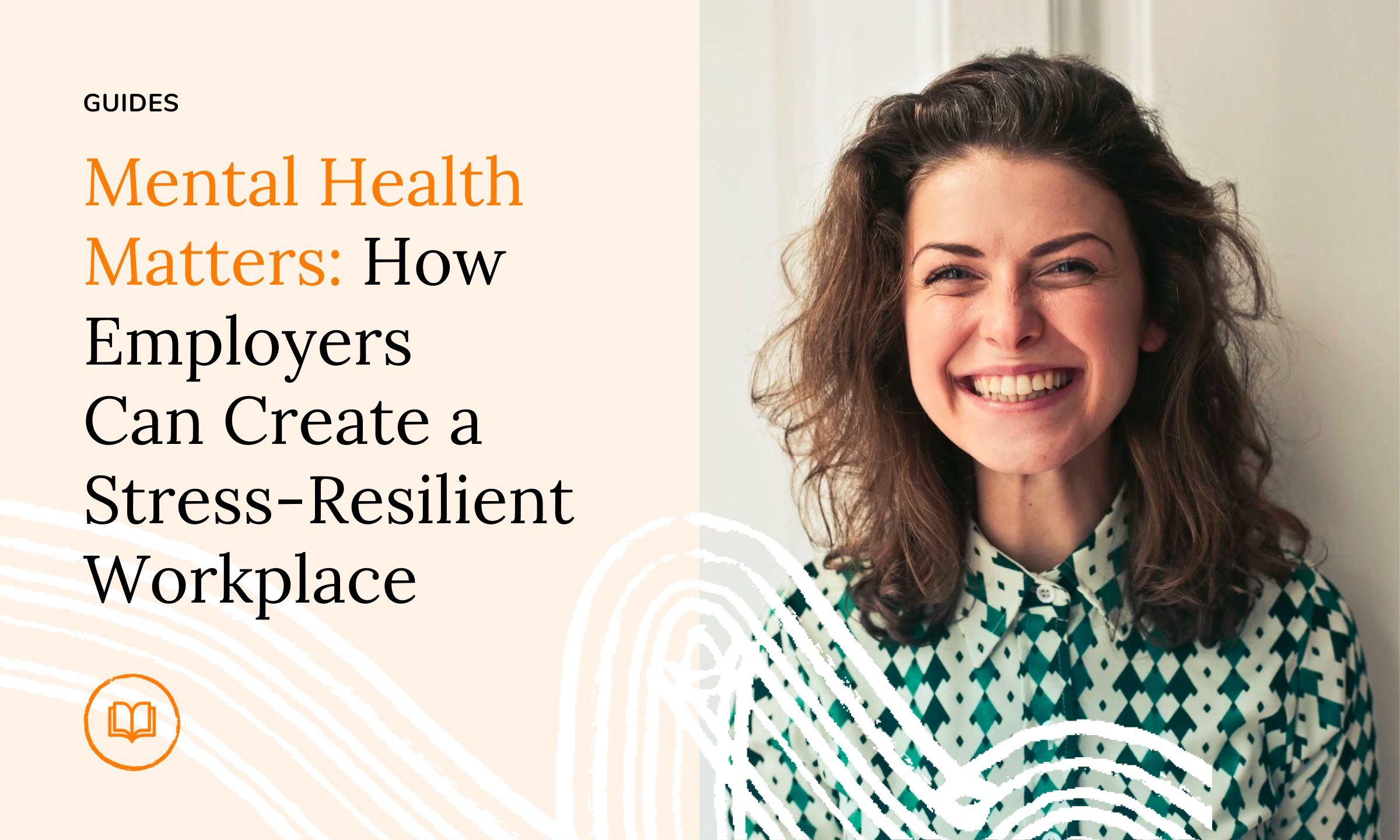
BlogLeadershipStress & Burnout
How Employers Can Create a Stress-Resilient Workplace
In this article, we’ll explore actionable strategies employers can adopt to create a stress-resilient workplace.
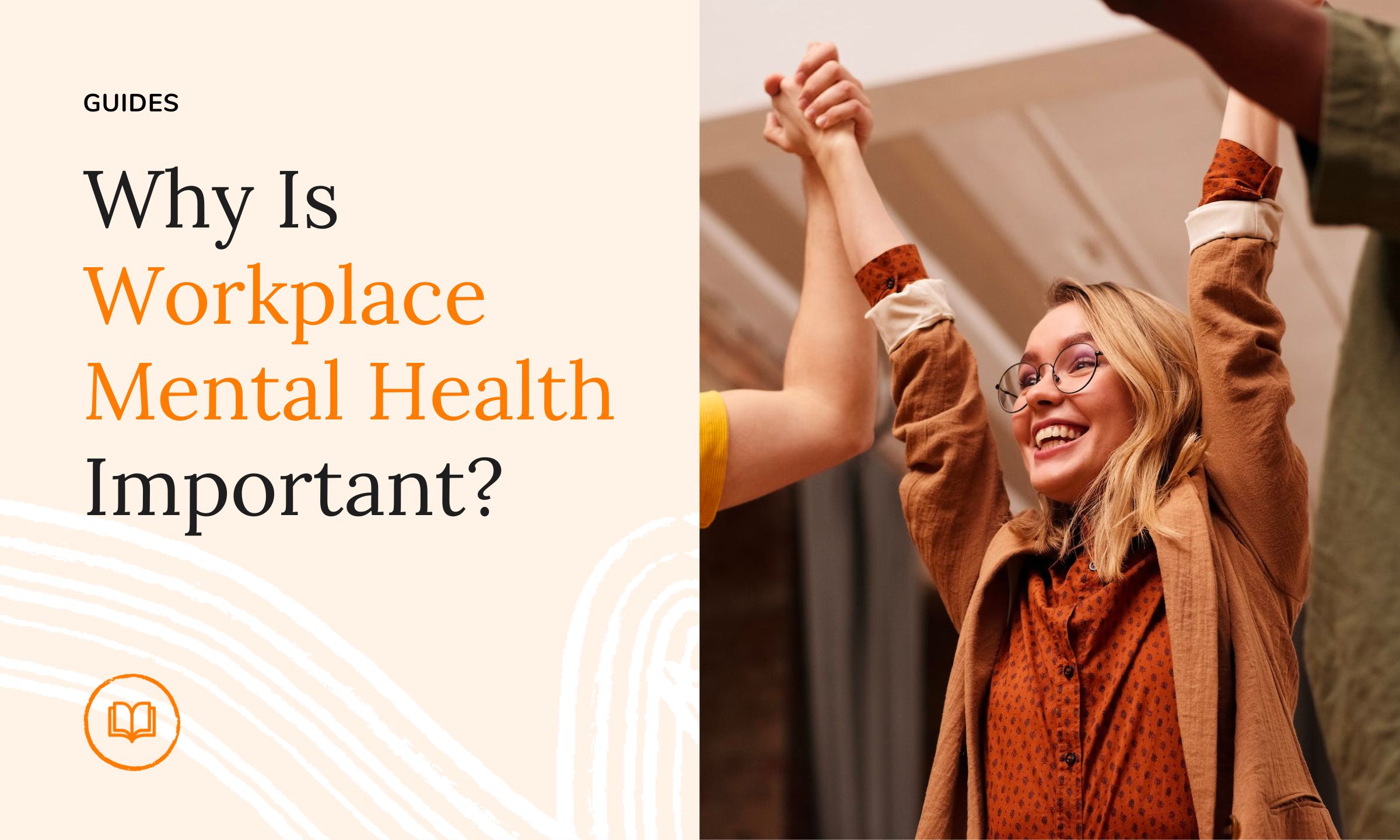
BlogEmployee BenefitsLeadership
Why Is Workplace Mental Health Important?
The relationship between a healthy workforce and a thriving business shows the importance of workplace mental health.
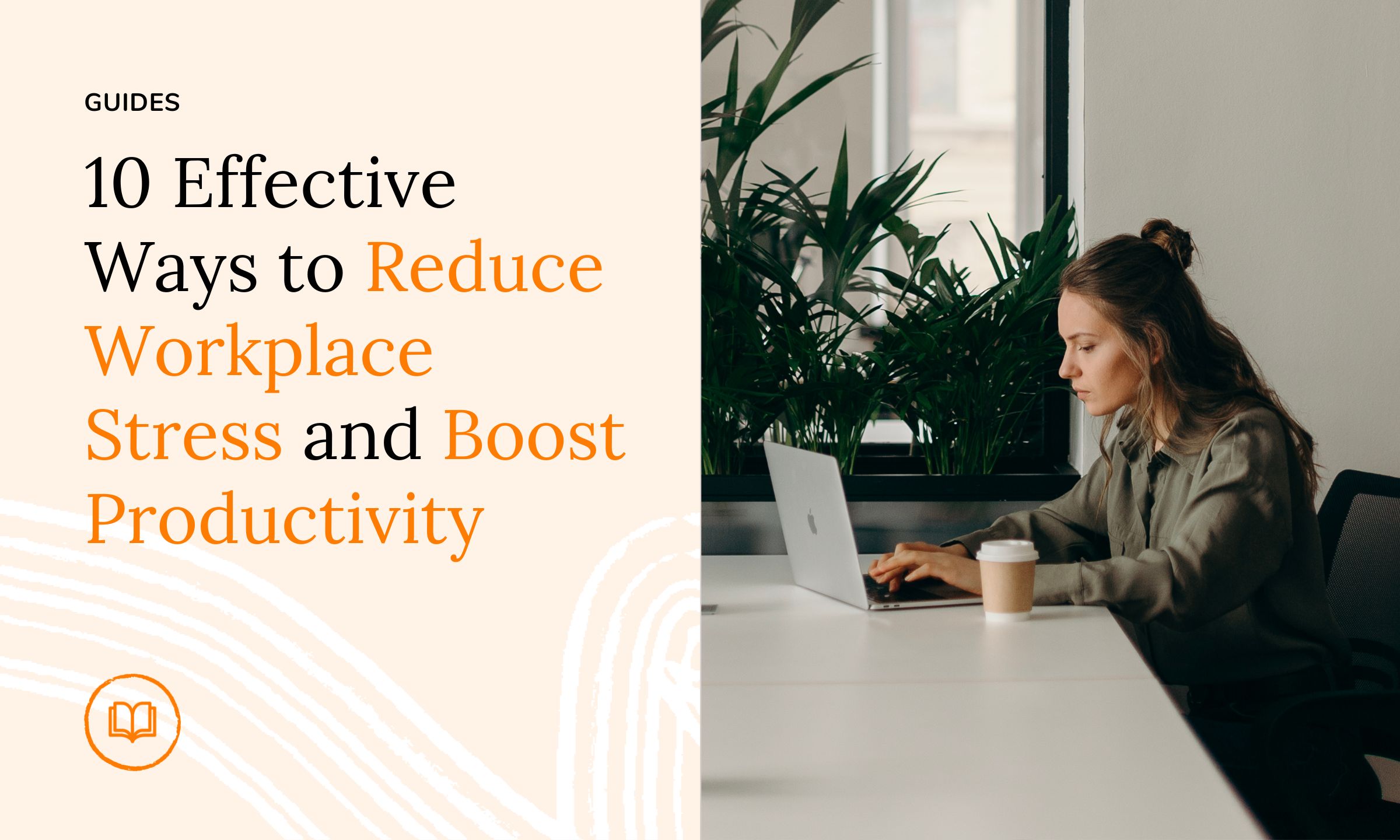
BlogEmployee HealthStress & Burnout
10 Effective Ways to Reduce Workplace Stress and Boost Productivity
Stress has profound repercussions on productivity, making it crucial for organizations to work to reduce workplace stress. Here’s how!
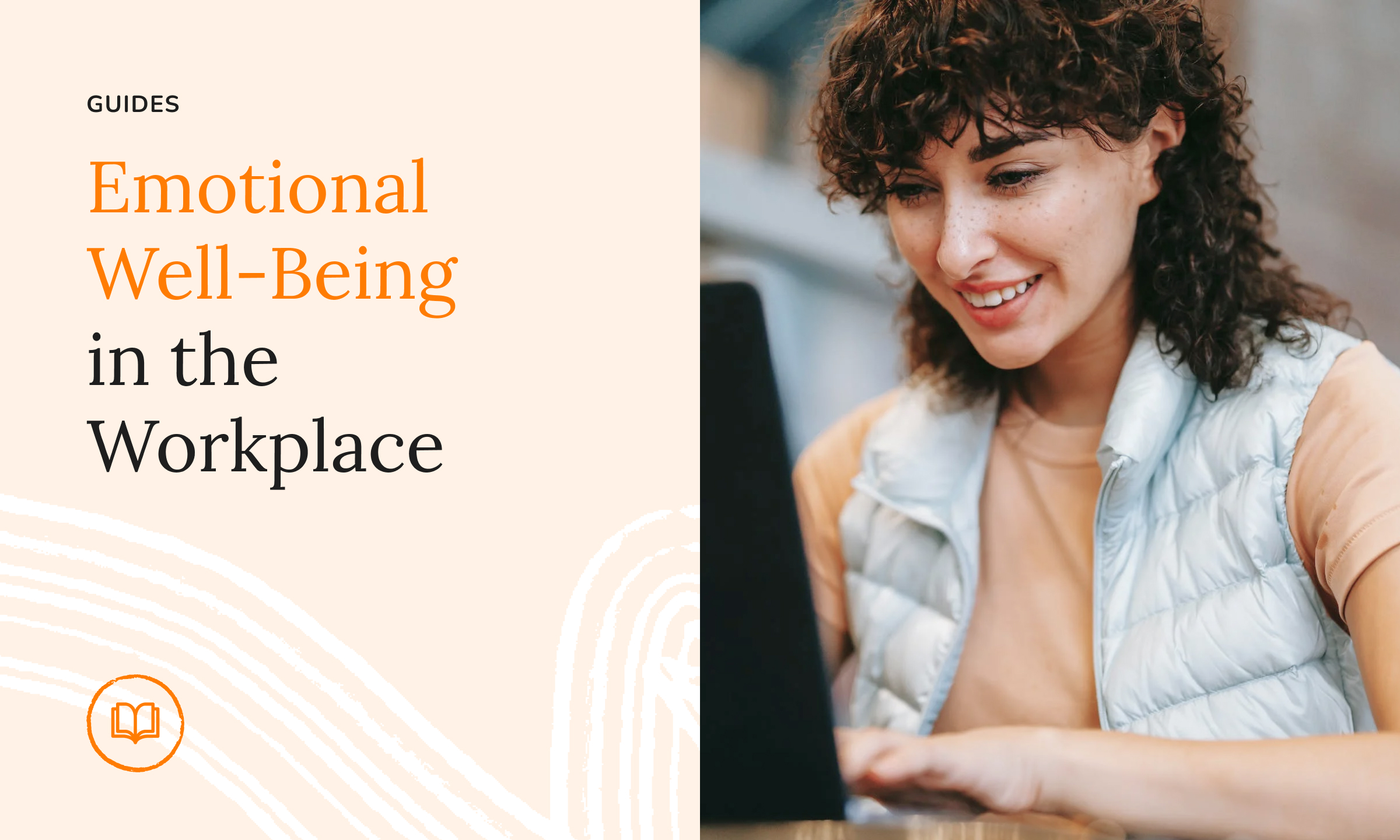
BlogEmployee Health
Emotional Well-Being in the Workplace
Emotional well-being in the workplace is a critical factor that impacts employee performance, engagement, and overall organizational…
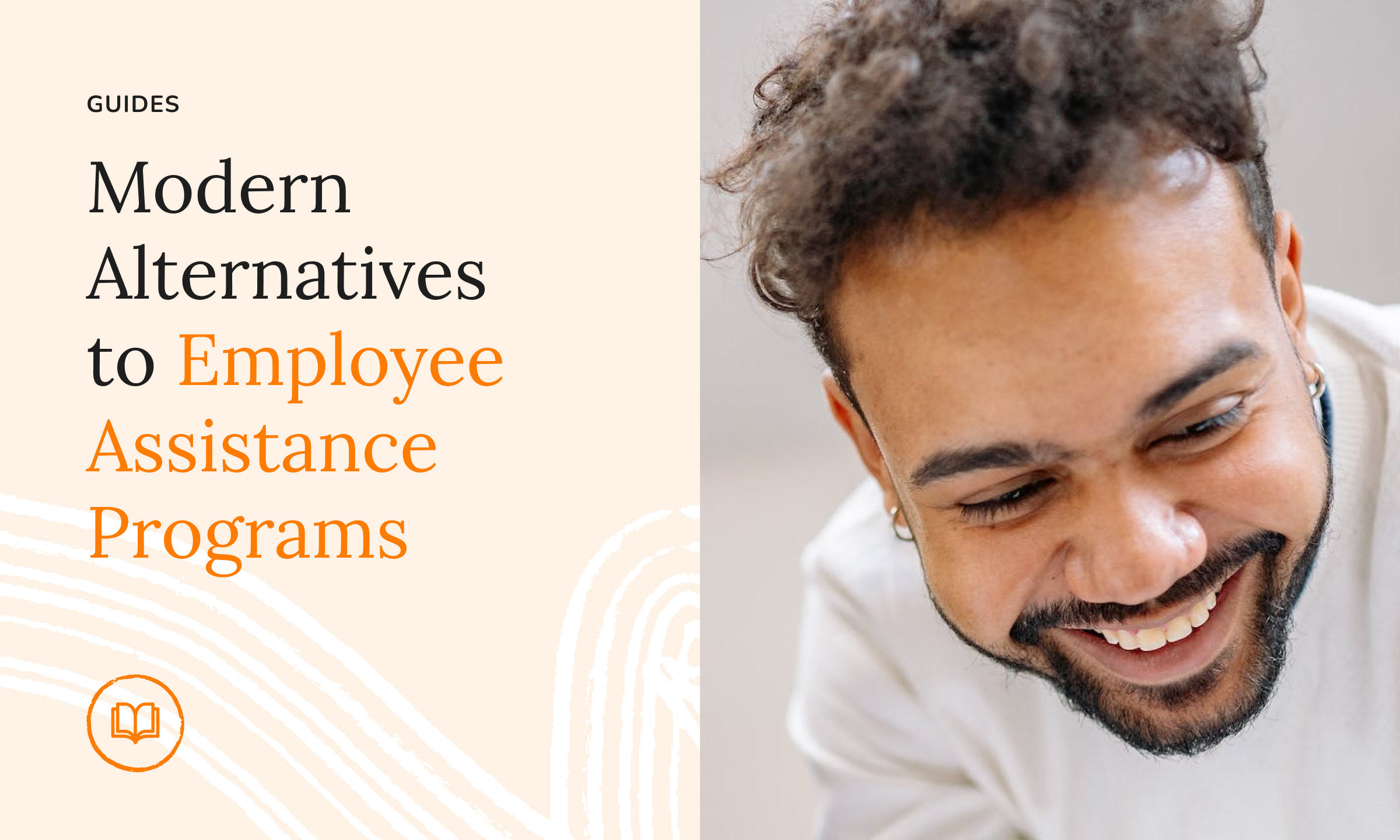
BlogEmployee Benefits
Modern Alternatives to Employee Assistance Programs
Modern alternatives to employee assistance programs are reshaping the way we support employees. In this article, we detail how!
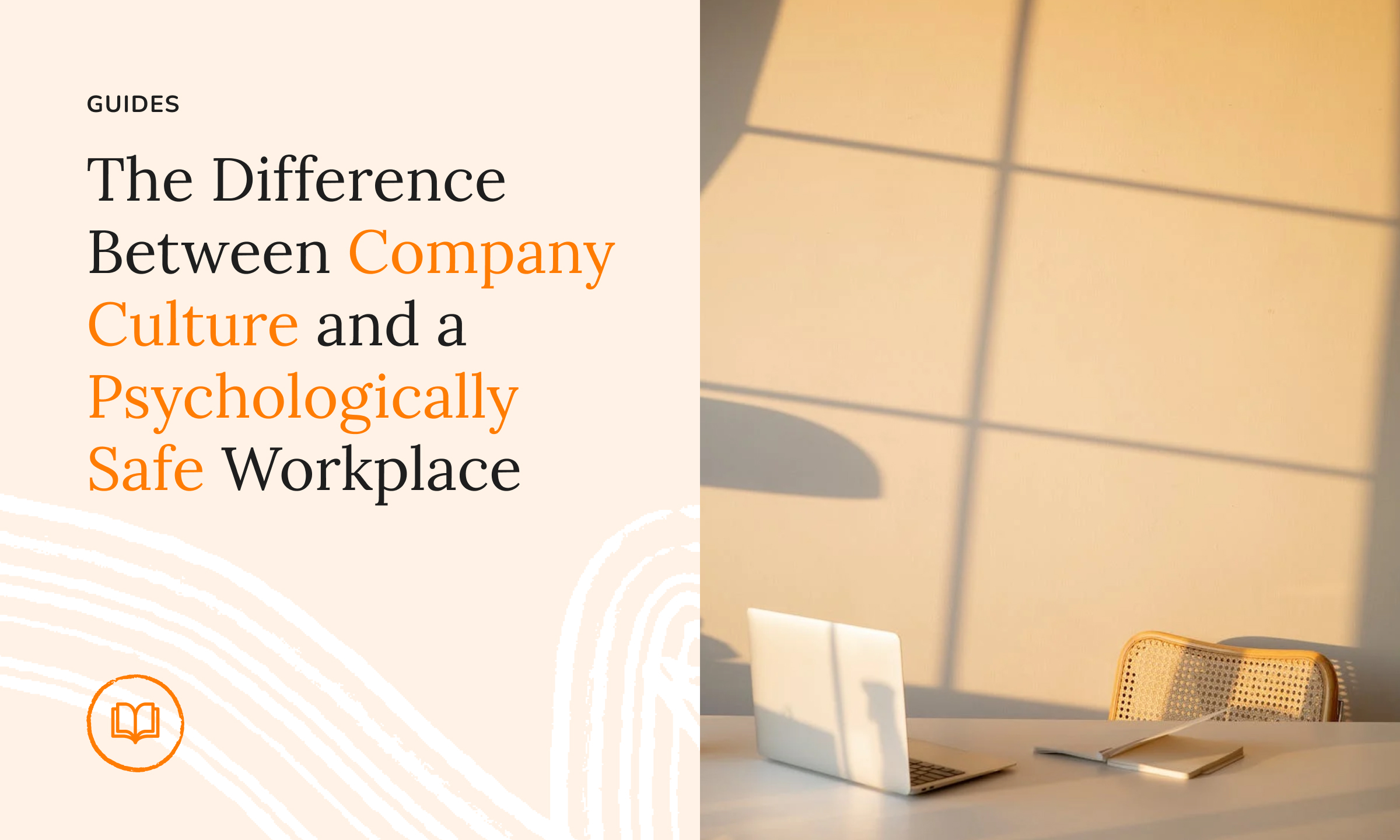
BlogCompany Culture
The Difference Between Company Culture and a Psychologically Safe Workplace
Company culture and “psychologically safe workplace” represent distinct aspects of the work environment. Let’s break them down.
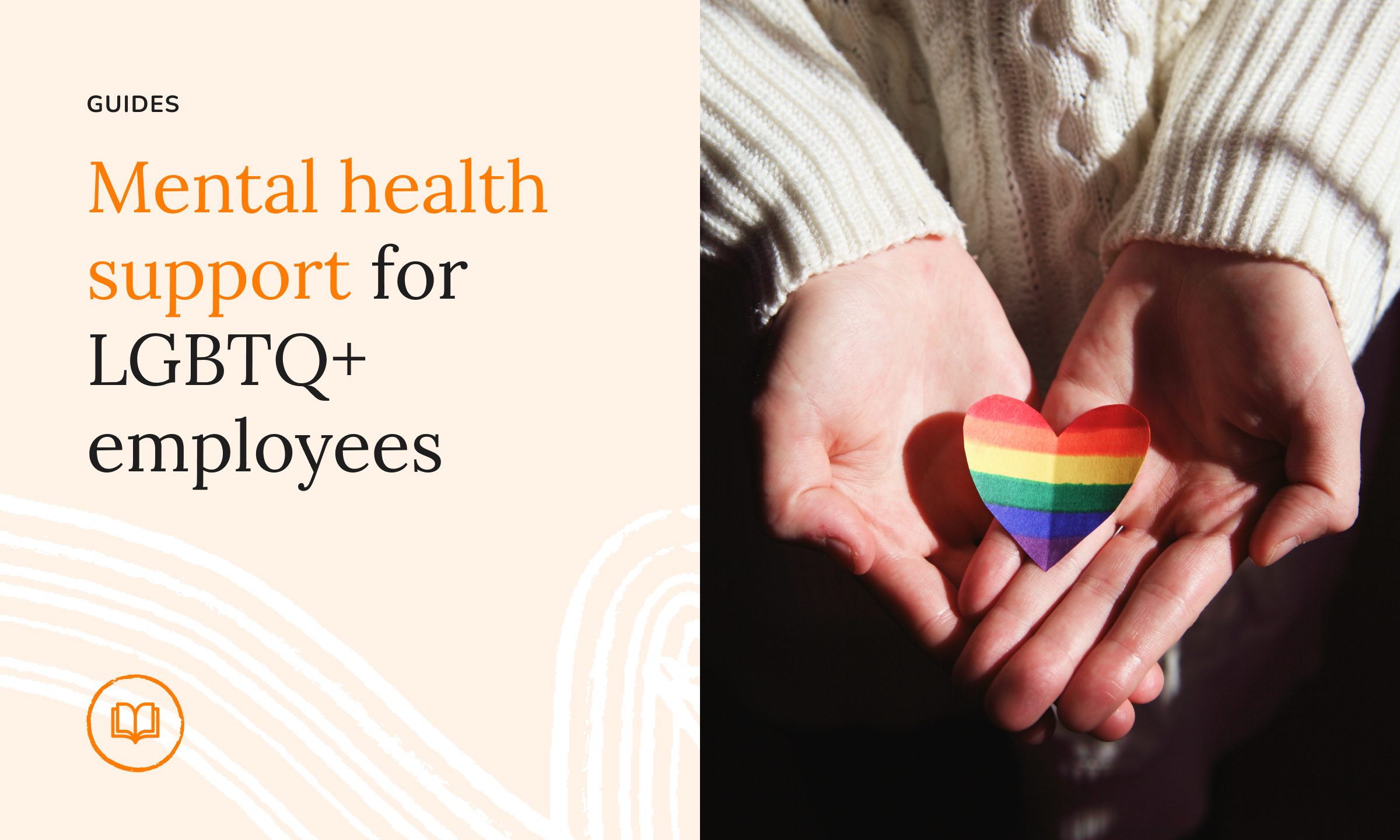
BlogDiversity Inclusion & EquityEmployee Health
Mental Health Support for LGBTQ+ Employees
Inclusive workplaces prioritize the mental well-being of all employees. This means taking steps to support LGBTQ+ employees’ mental health.
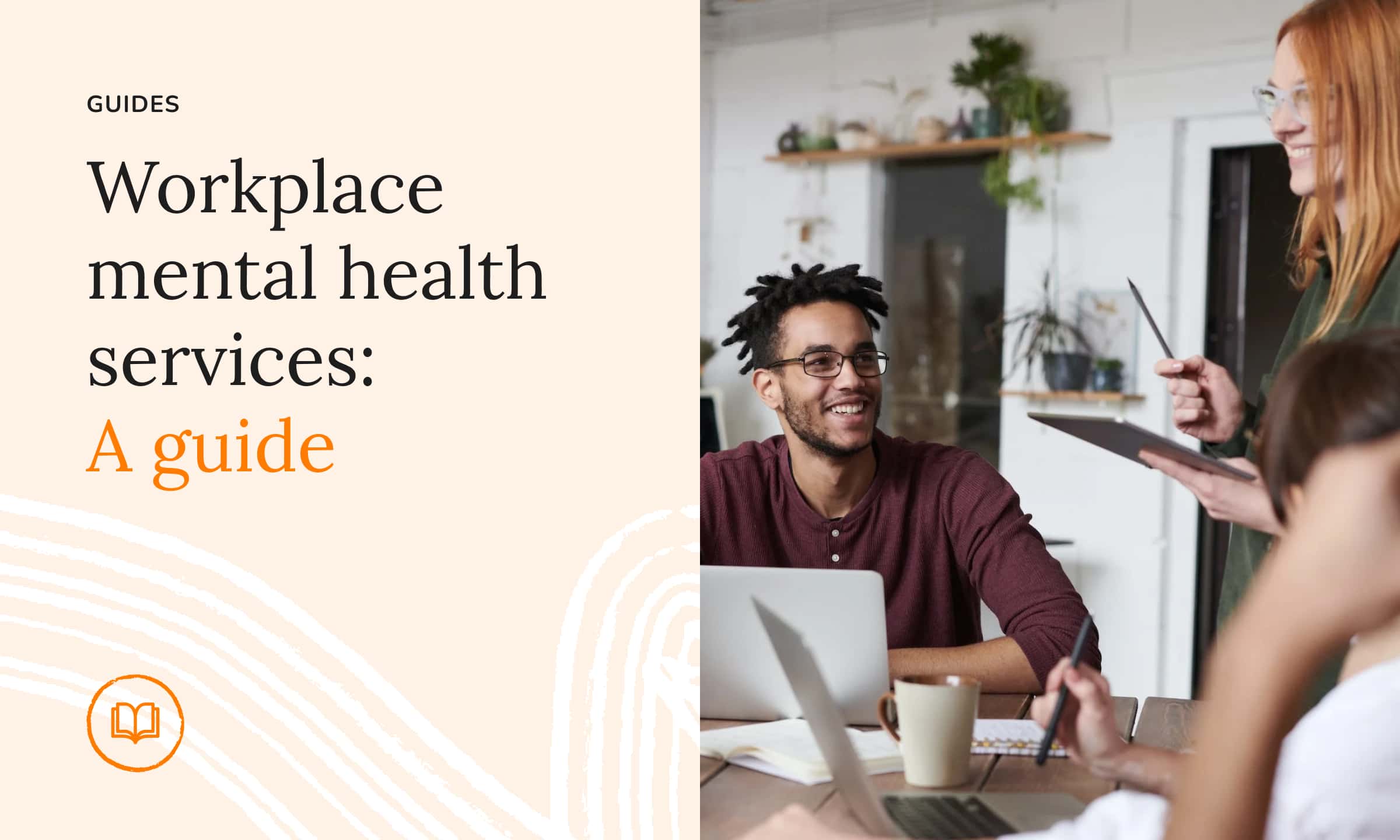
BlogEmployee Benefits
Workplace mental health services: A guide
Workplace mental health services benefit both employers and employee by boosting mental health and business. Here’s how.
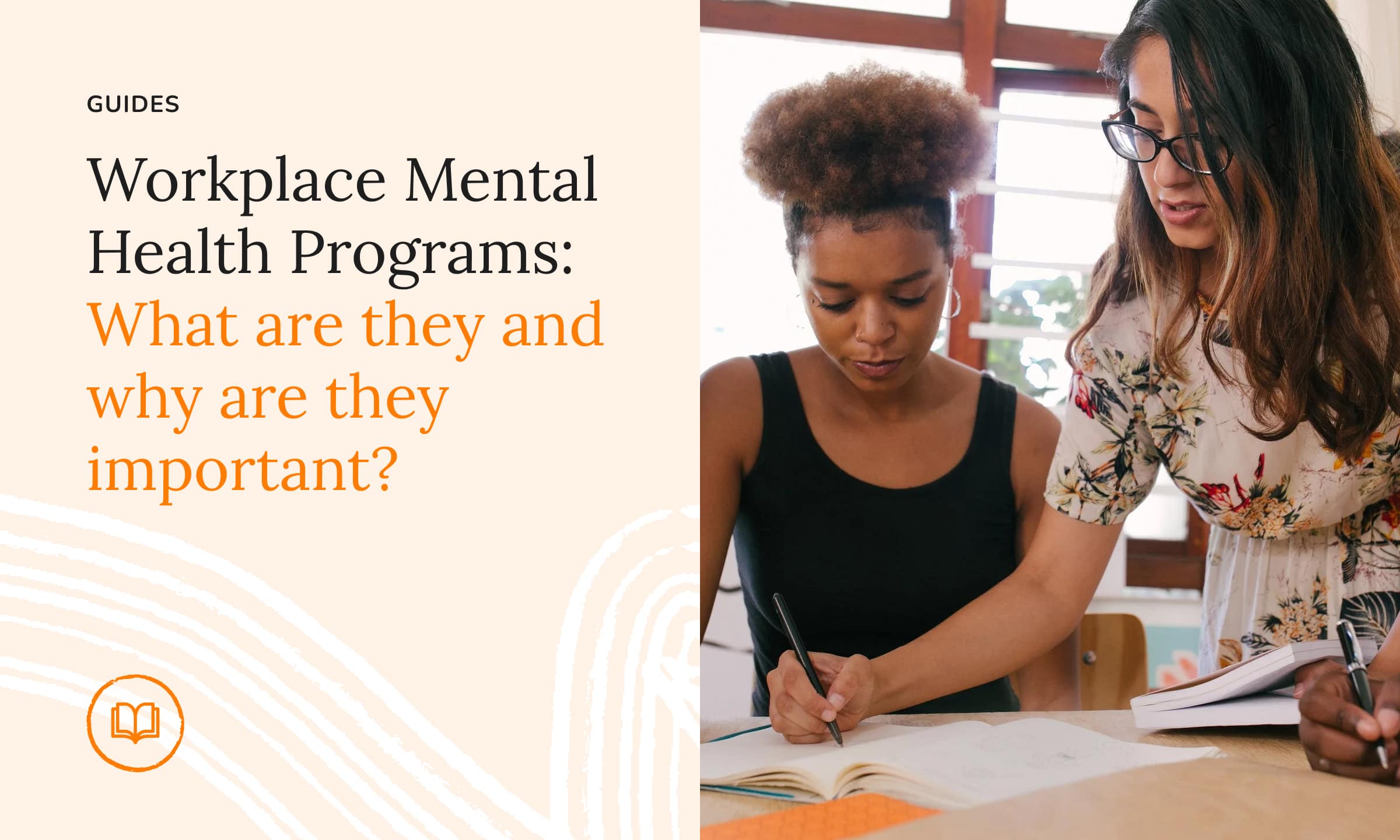
BlogEmployee Benefits
Workplace Mental Health Programs: A complete guide
Workplace mental health programs have gained increasing attention as a way to promote good mental health and see business success.
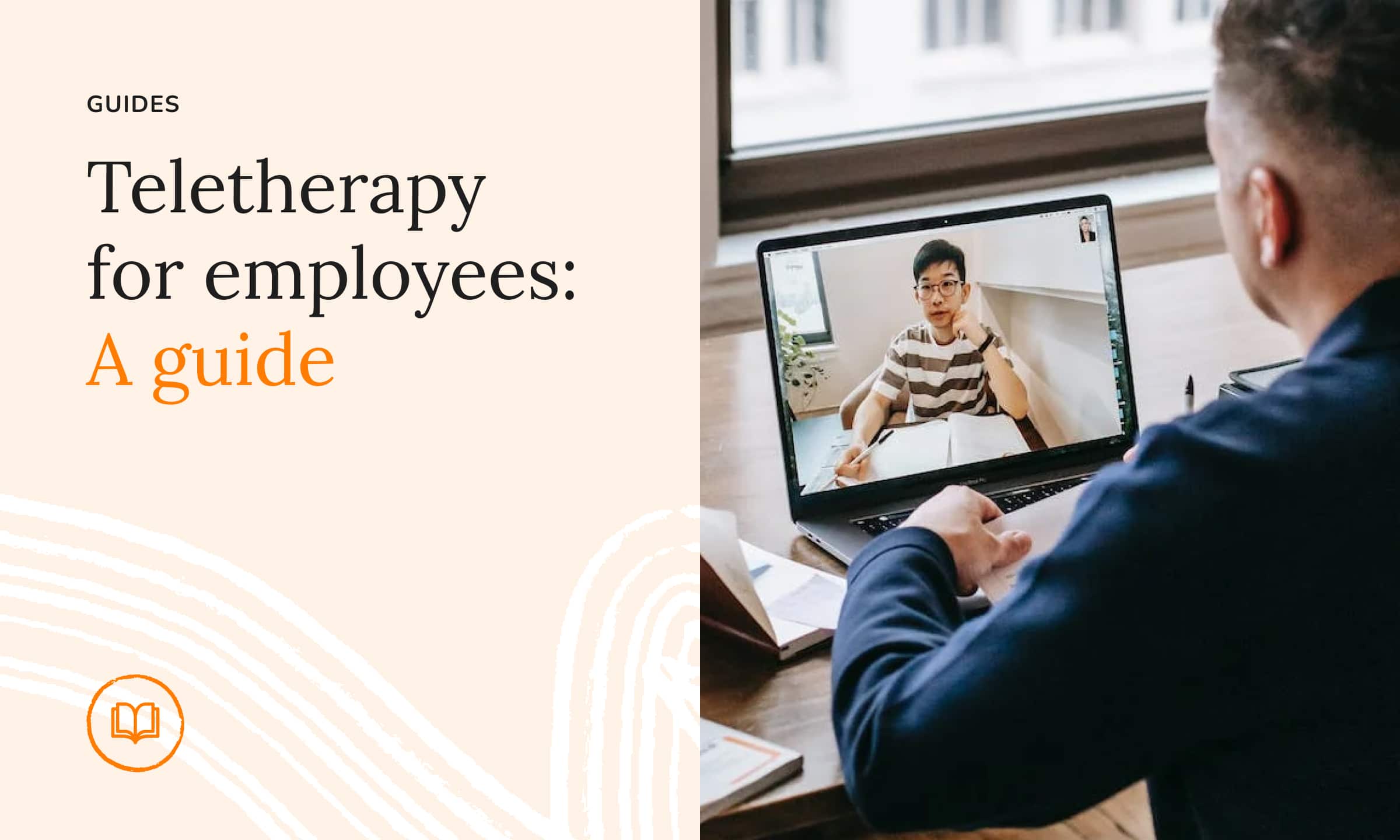
BlogEmployee BenefitsEmployee Health
Teletherapy for employees: A guide
Let’s explore the benefits of teletherapy for employees and how companies can provide it to support employee mental health and boost…
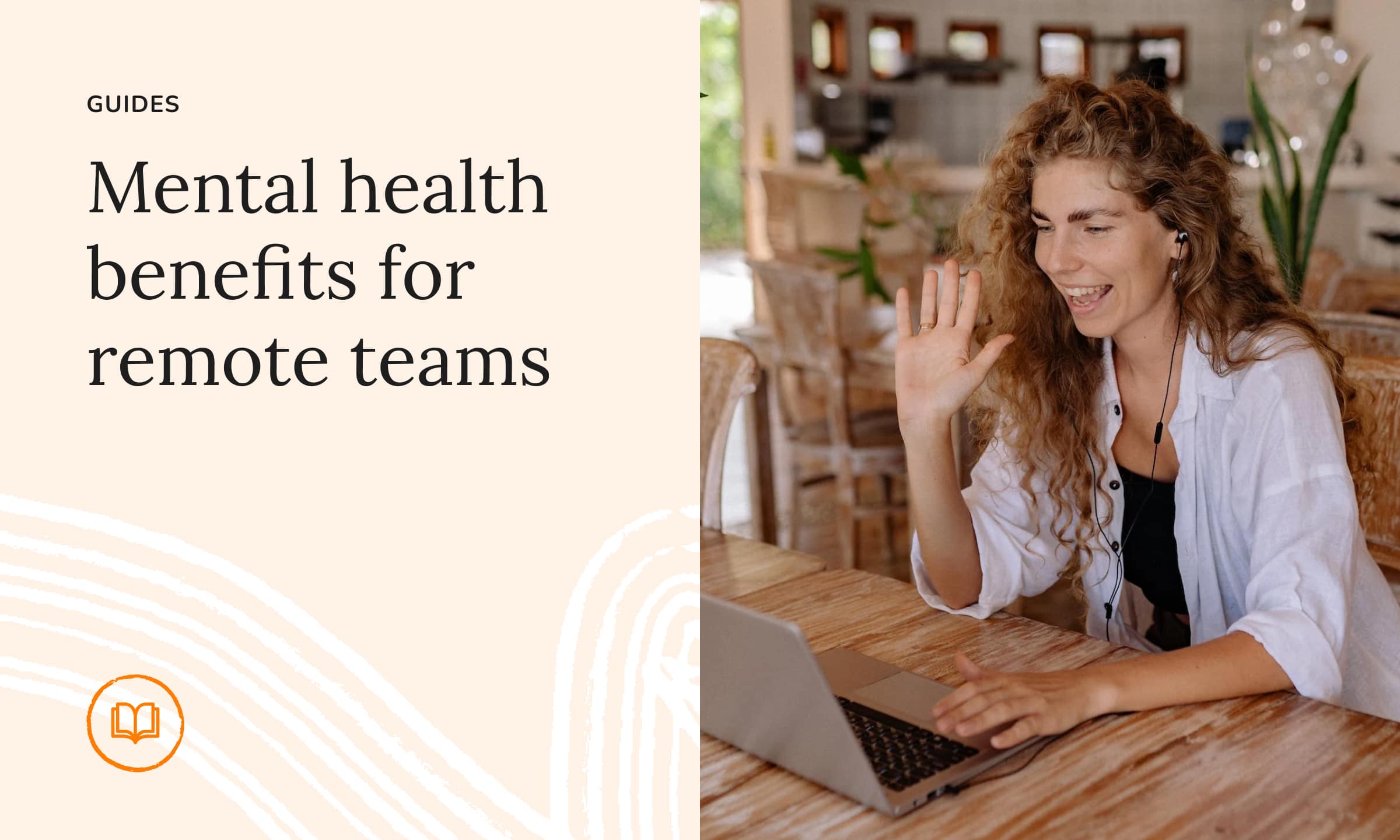
BlogEmployee Benefits
Mental health benefits for remote teams
Mental health benefits for remote teams are a crucial aspect of avoiding burnout and creating a close and welcoming company culture.
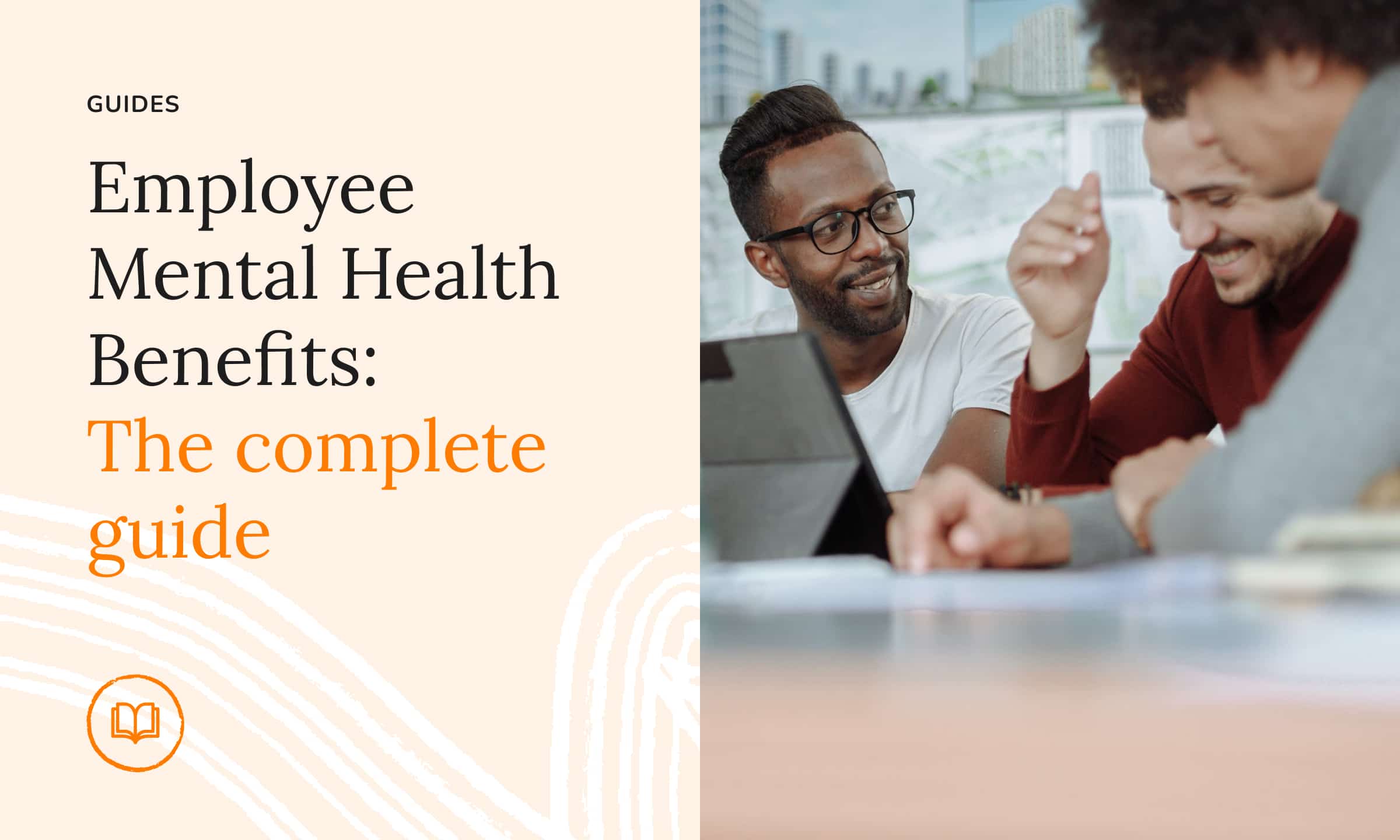
BlogEmployee BenefitsEmployee Health
Employee Mental Health Benefits: The complete guide
In today’s fast-paced, high-stress work environment, employee mental health benefits may prove crucial to company success.

BlogEmployee Benefits
Corporate Wellness Programs: The complete guide
In this article, we will explore the benefits of corporate wellness programs, the different types of programs available, and how companies…
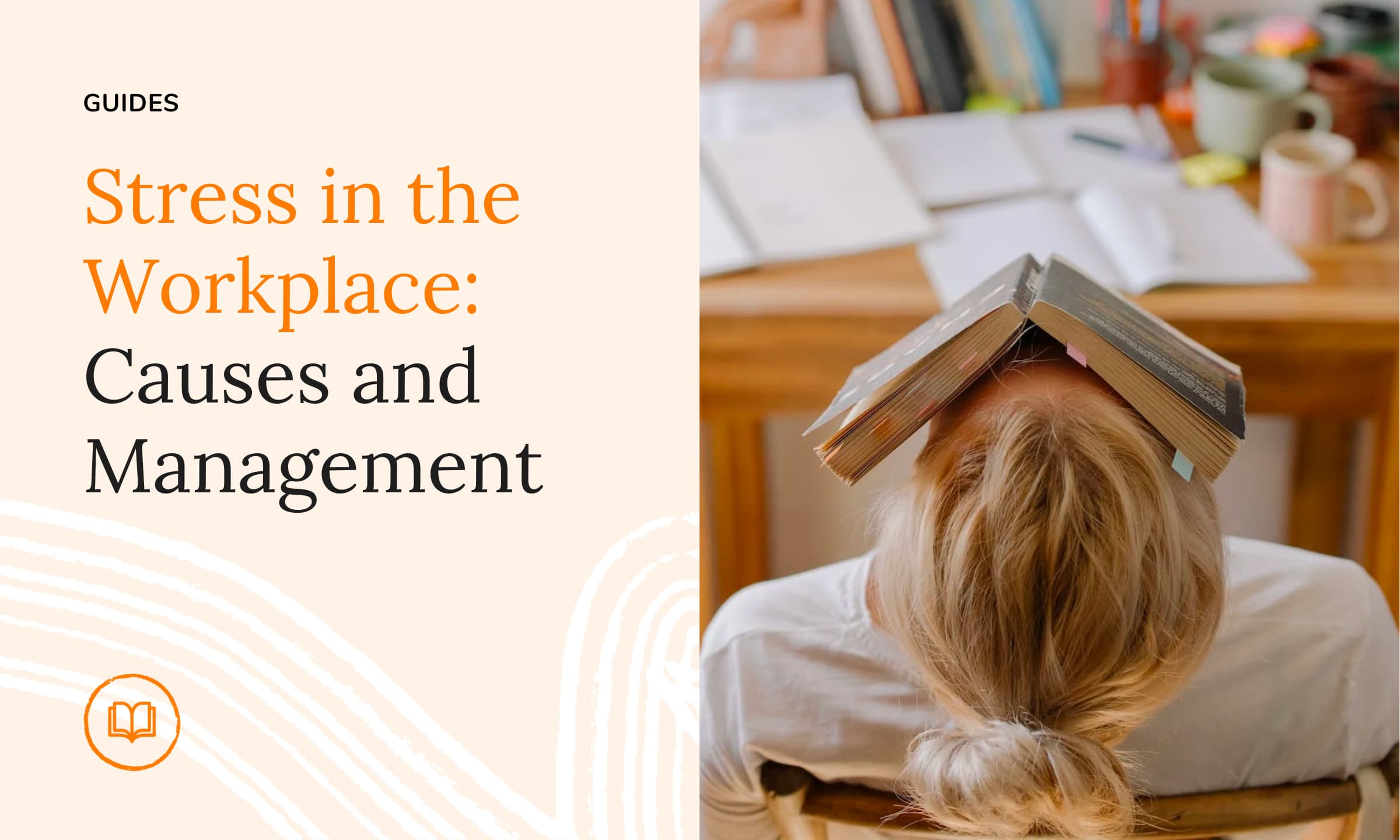
BlogEmployee HealthLeadershipStress & Burnout
Risk assessments for stress
Stress in the workplace demoralizes, demotivates and damages your company’s financial health – let’s put a stop to it!
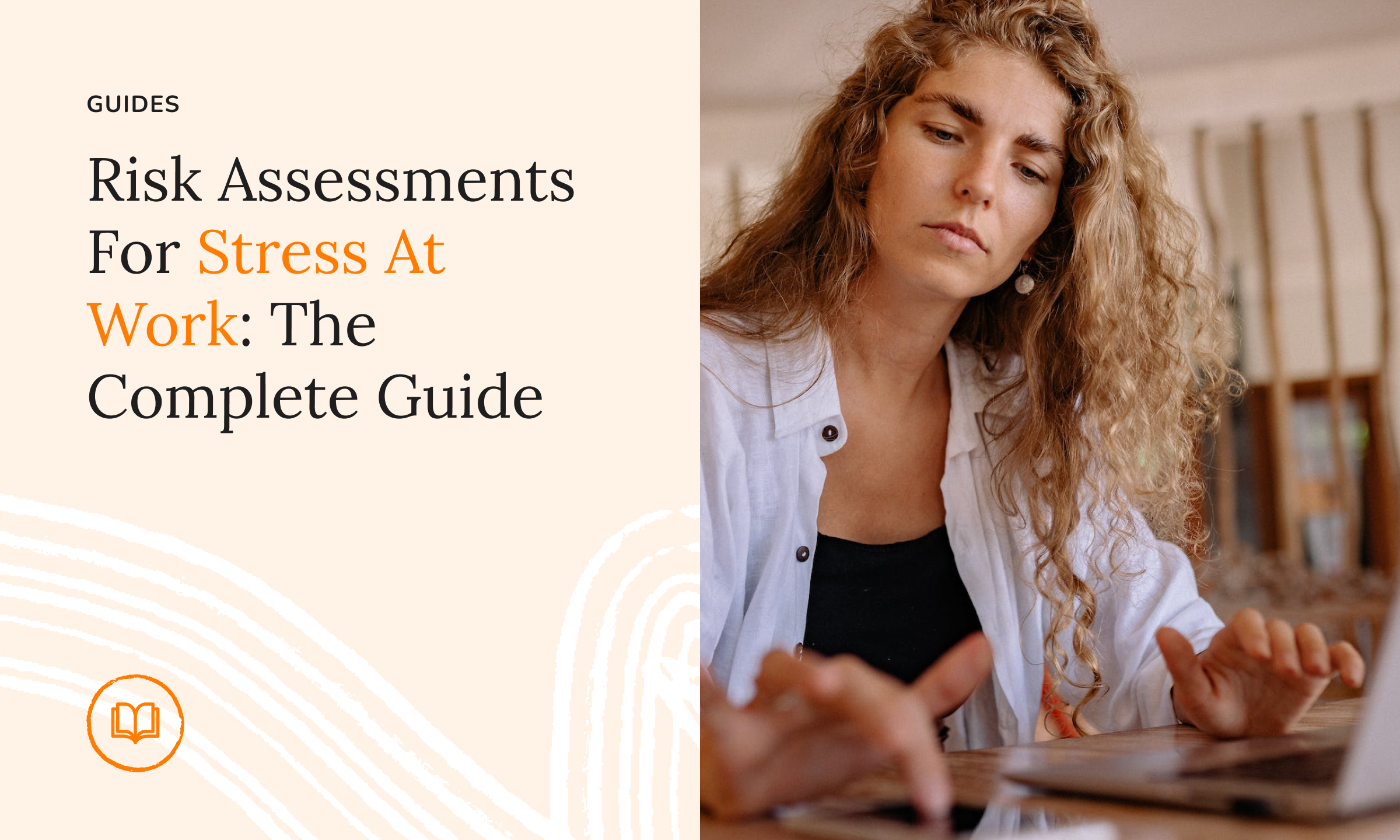
BlogEmployee HealthLeadership
Risk Assessments For Stress At Work: The Complete Guide
If you’re worried about company stress, it’s a good idea to act preventatively by conducting regular risk assessments for stress at…
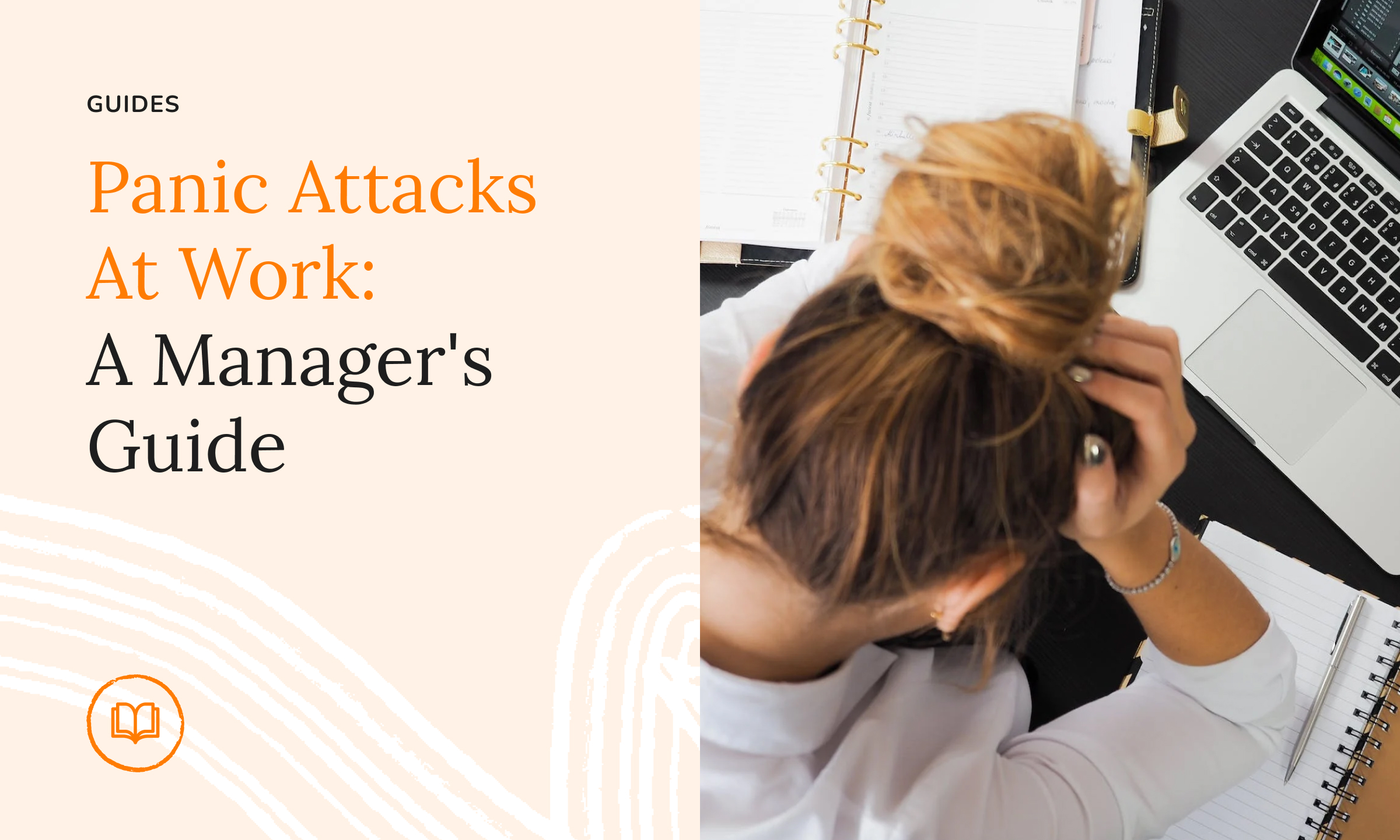
BlogEmployee HealthLeadership
Panic Attacks At Work: A Manager’s Guide
Managing panic attacks at work is part of a manager’s responsibility to the health, well-being and performance of their team: here’s how!
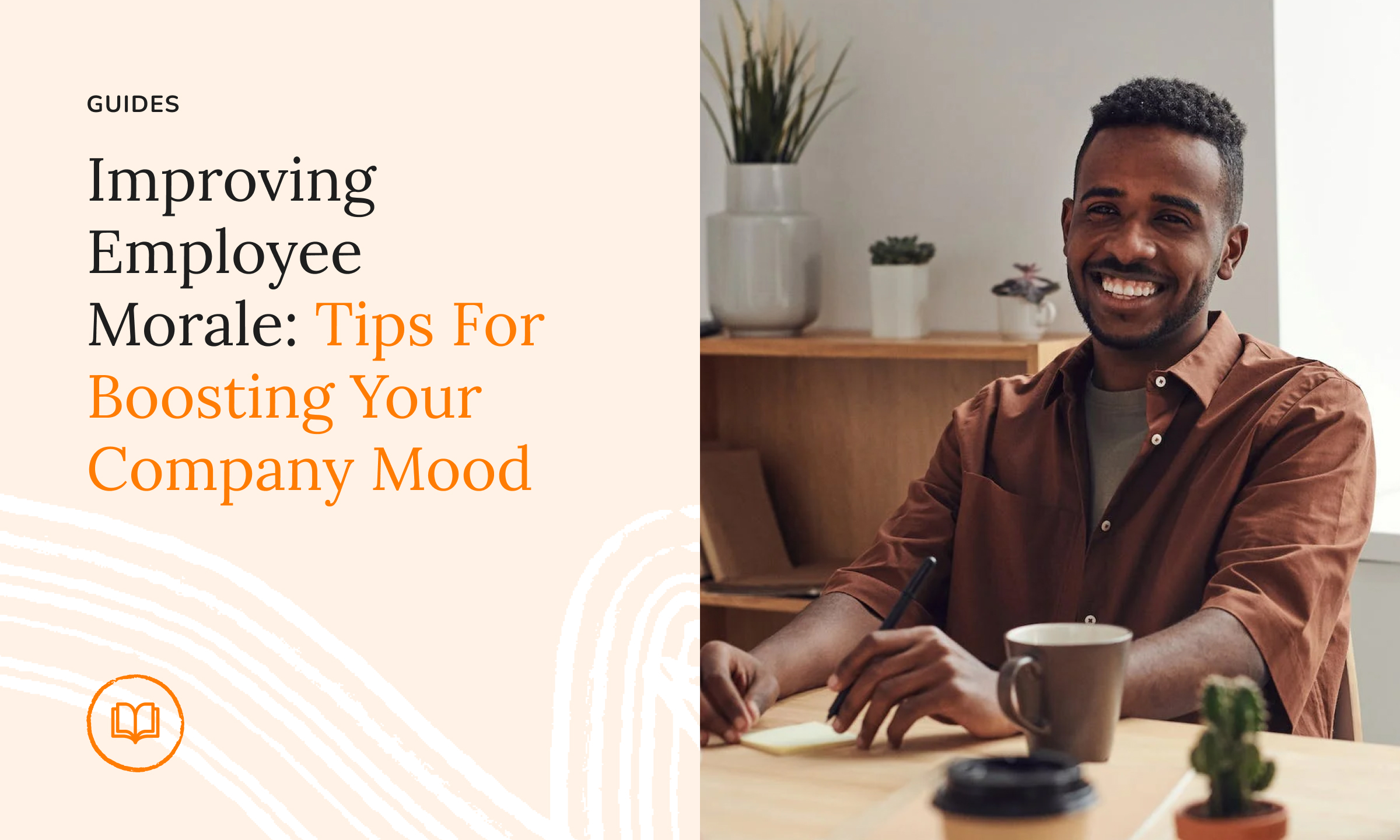
BlogEmployee Health
Improving Employee Morale: Tips For Boosting Your Company Mood
Explore the concept of employee morale, its impact on a company, and practical ways for improving employee morale in the workplace.
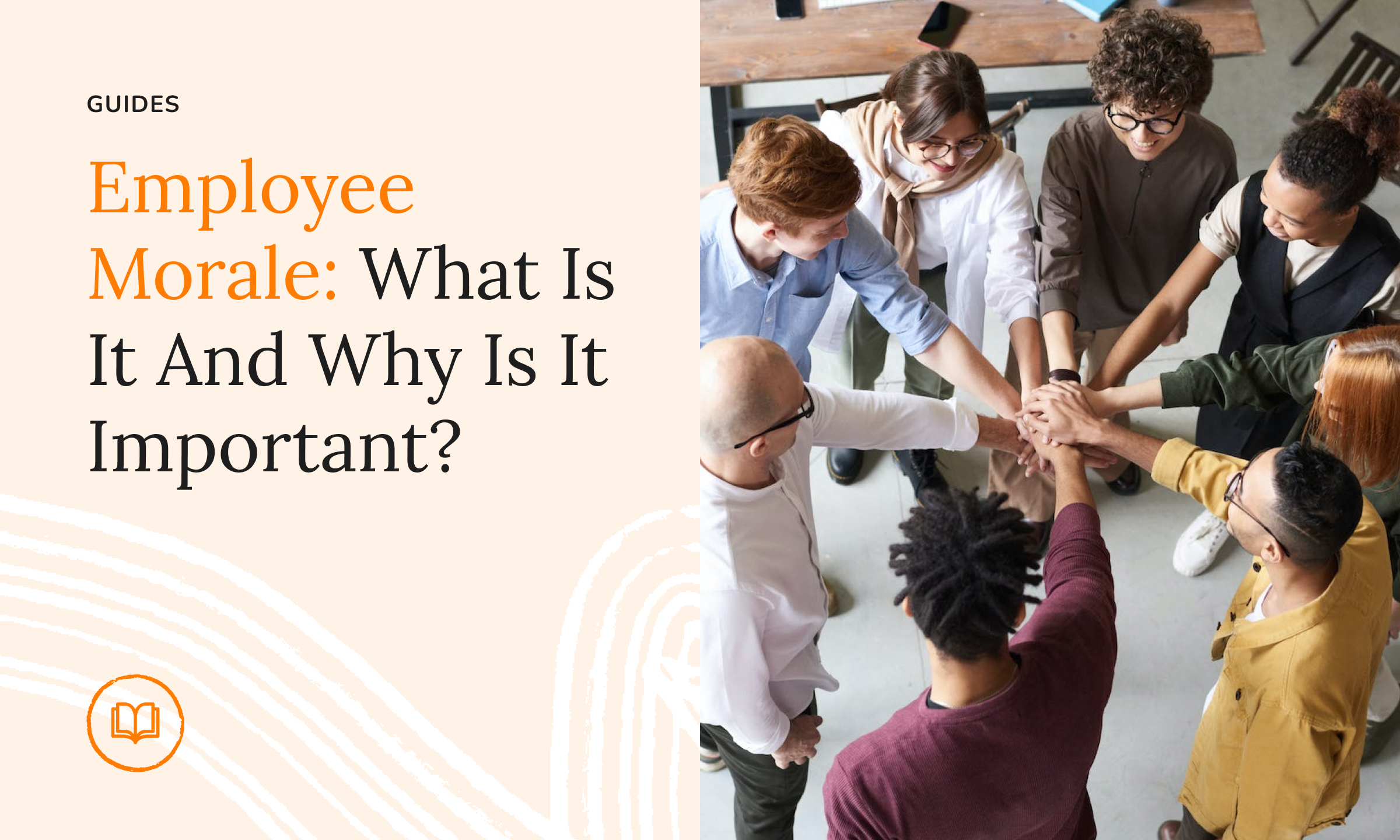
BlogEmployee Health
Employee Morale: What Is It And Why Is It Important?
What’s the difference between a productive, thriving company and one that is down in the dumps? Employee morale!
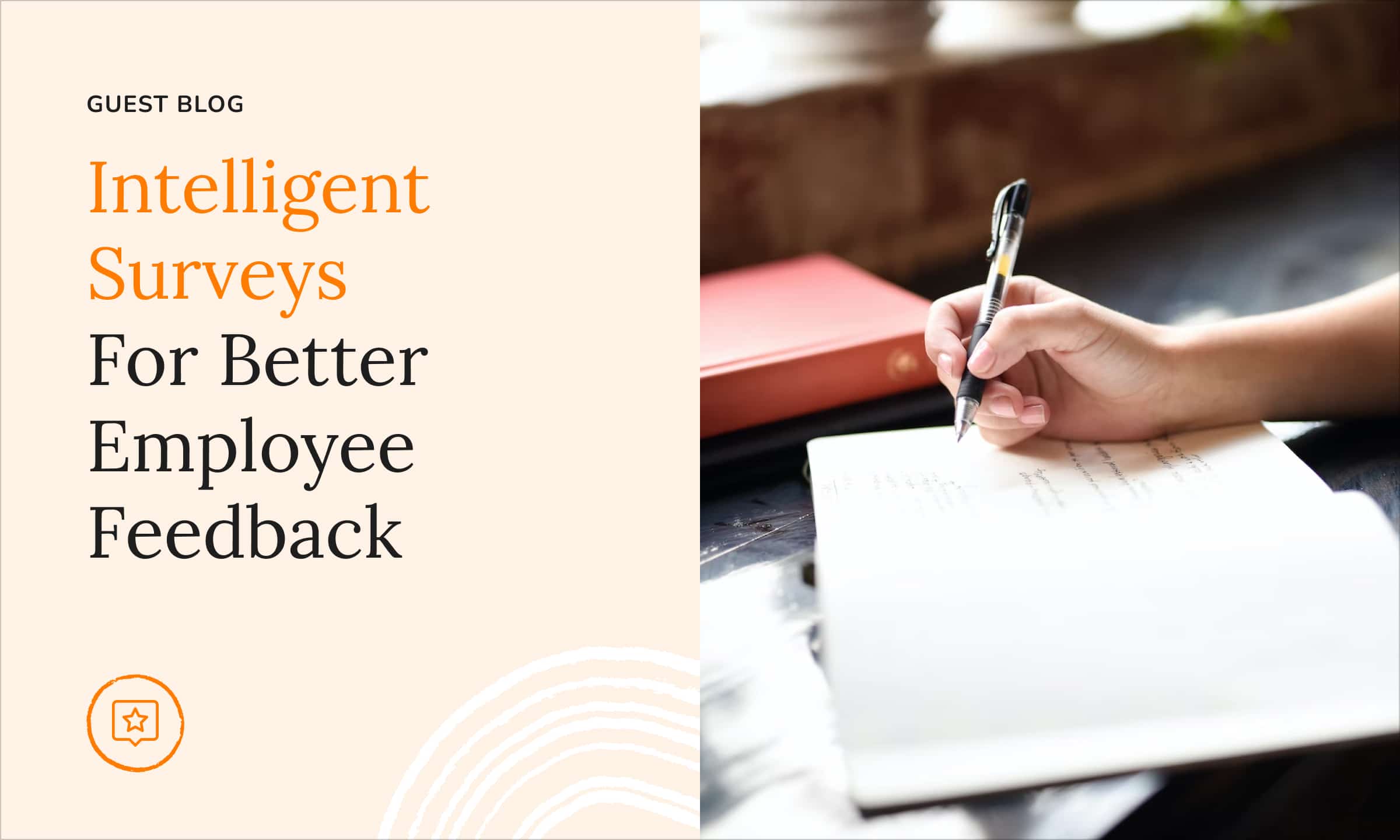
BlogCompany CultureLeadership
Intelligent Surveys For Better Employee Feedback
As HR teams aim to digitalise operations and apply a more data-driven approach, digital employee pulse surveys have become a must-have.
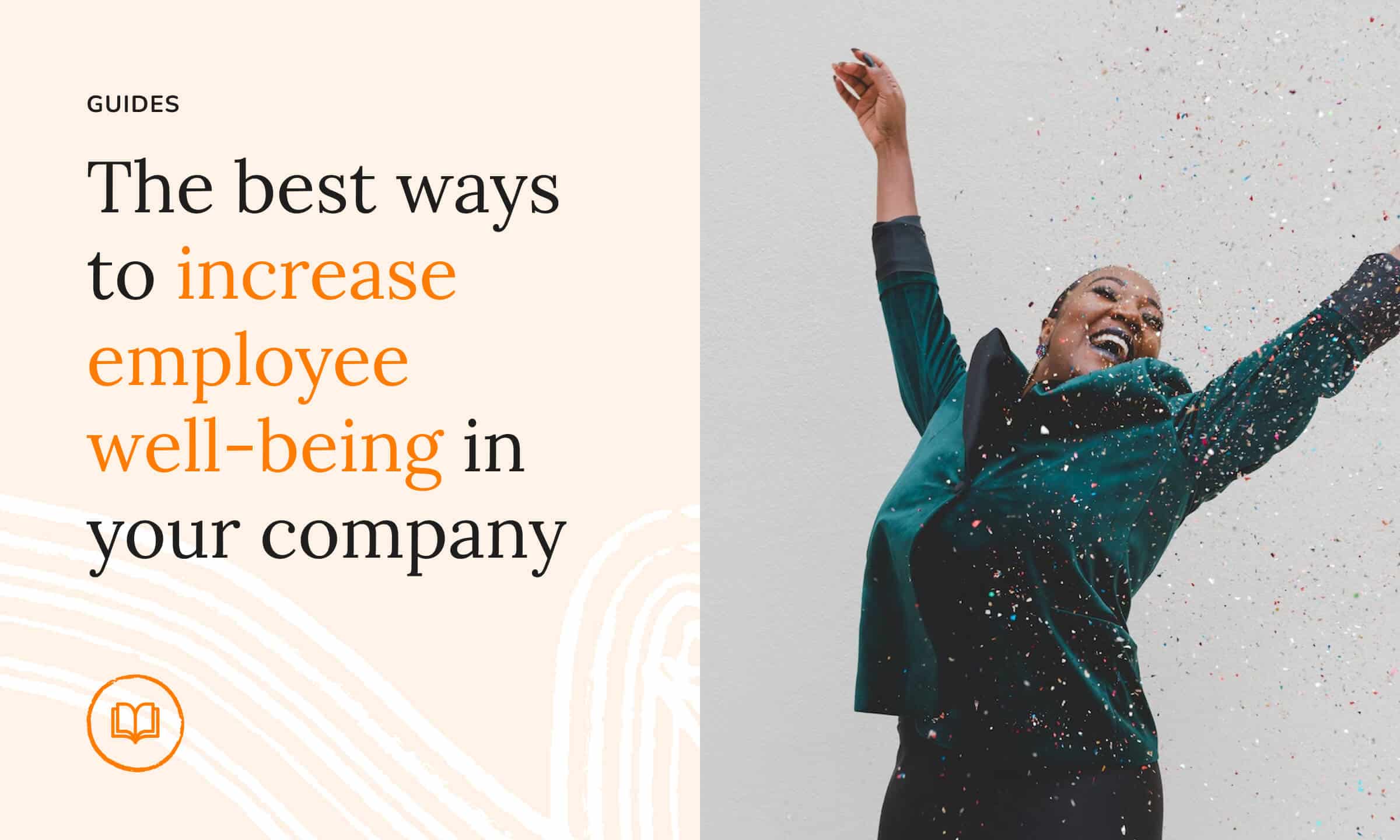
BlogEmployee HealthLeadership
Employee well-being: how to increase it in your company
A workplace that prioritizes the well-being of its employees benefits from higher retention rates, lower costs, increased productivity, and…
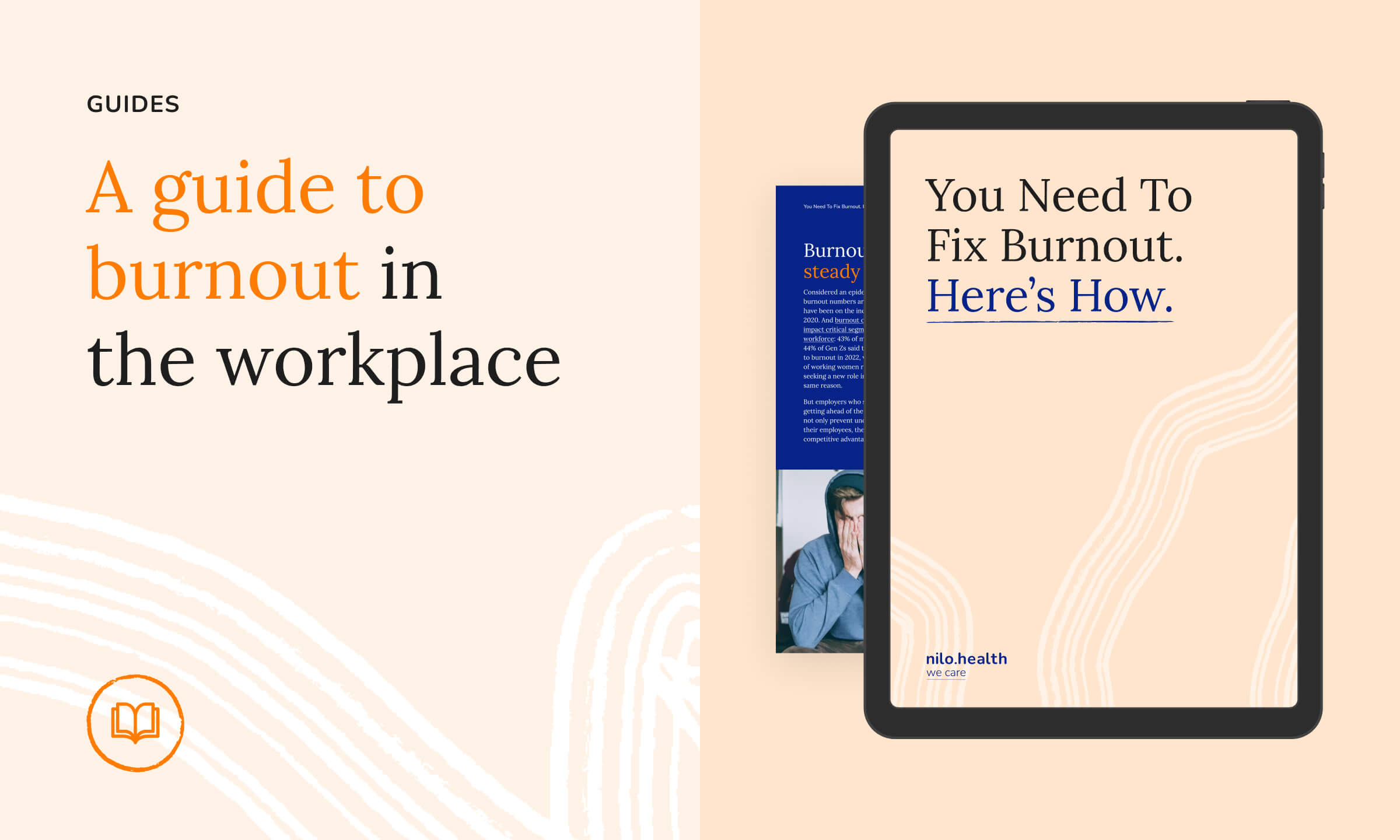
BlogStress & Burnout
Understand Burnout: Your Workplace Guide
Burnout is a growing concern in the modern workplace, affecting employees’ mental and physical health, productivity and job satisfaction.
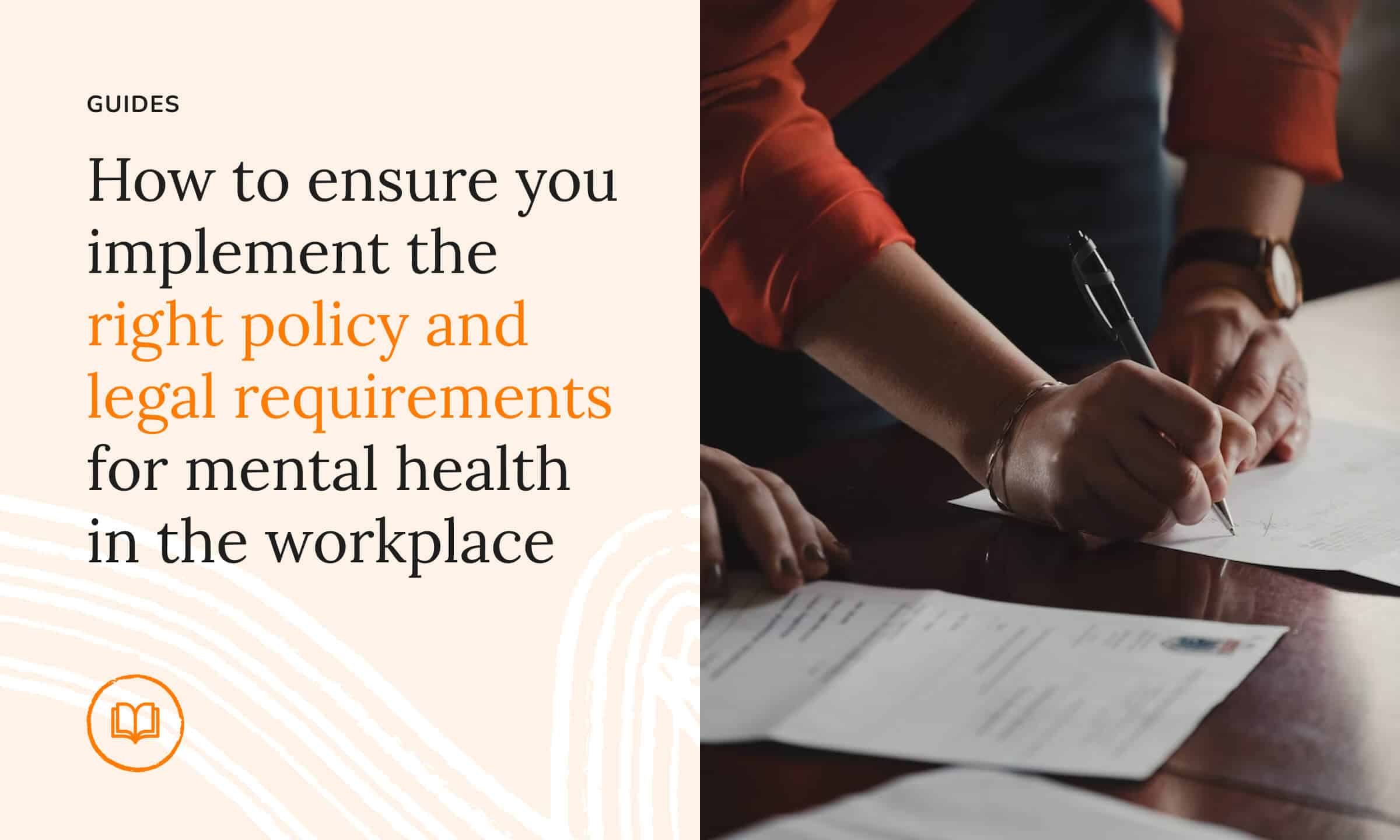
BlogDiversity Inclusion & Equity
How to ensure you implement the right policy and legal requirements for mental health in the workplace
Mental health is an important aspect of overall well-being, and it is important for employers to provide a supportive and safe work…
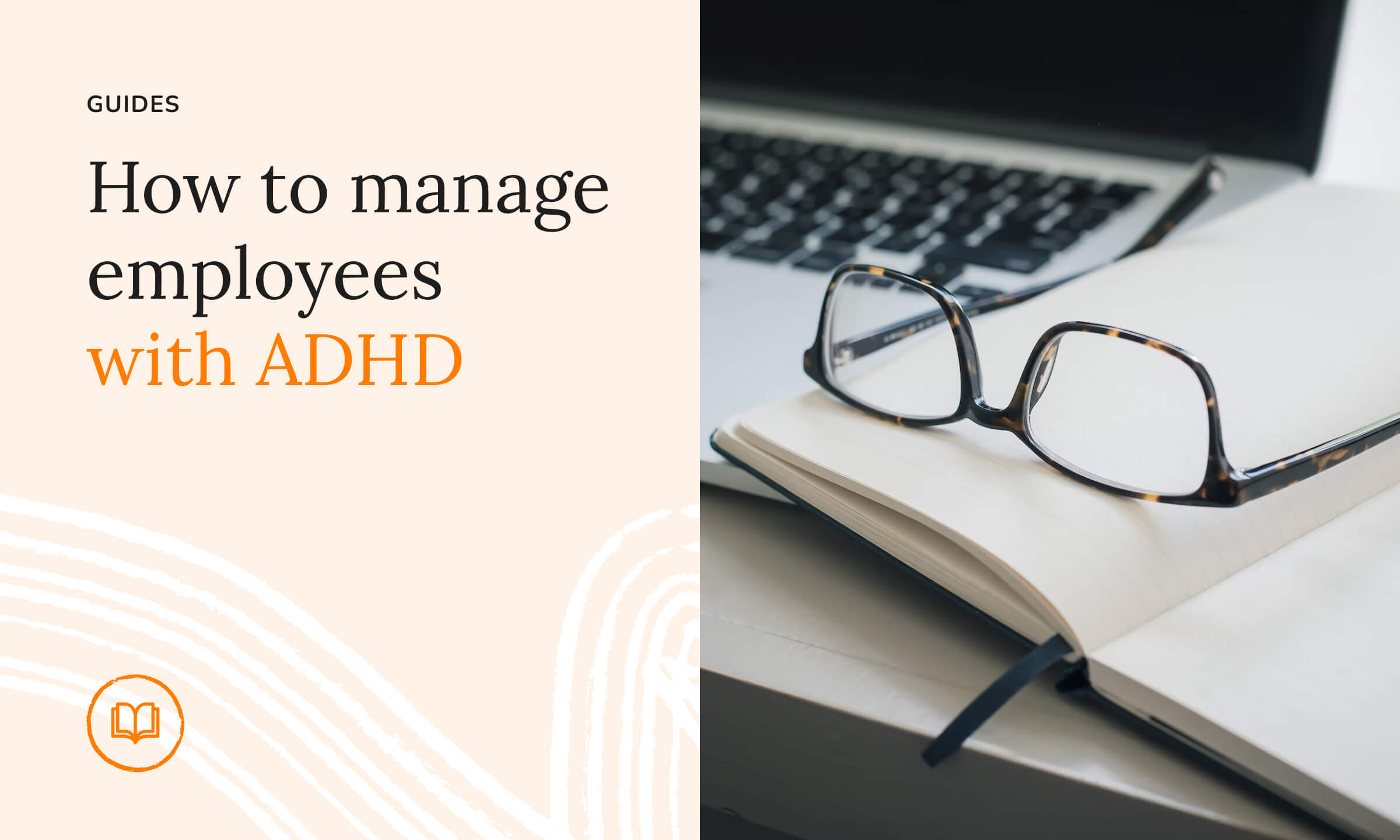
BlogDiversity Inclusion & Equity
Employees with ADHD: Manage them so they thrive
ADHD (Attention Deficit Hyperactivity Disorder) is a neurodevelopmental disorder that can affect an individual’s ability to focus,…
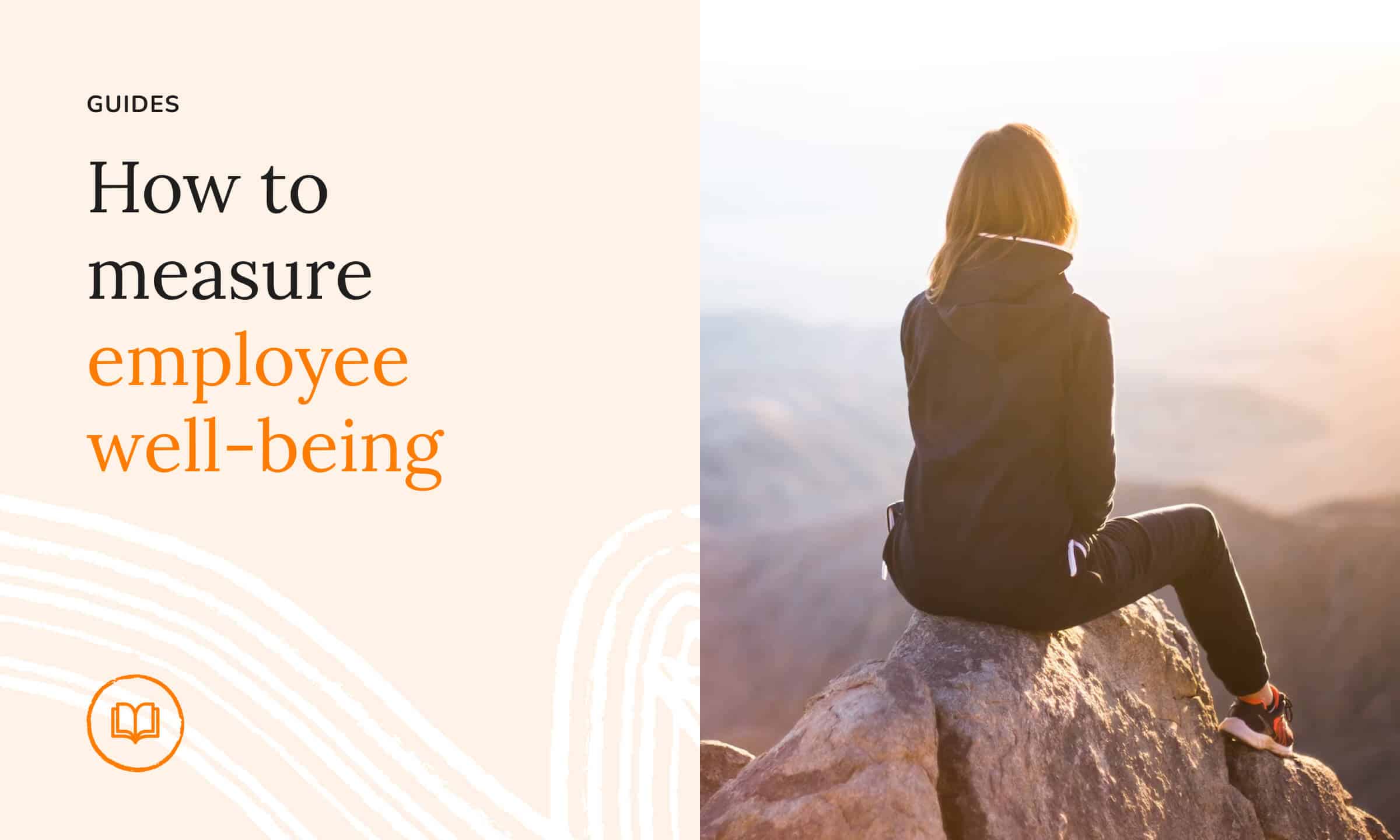
BlogEmployee Health
Measuring Employee Well-Being: The ultimate how-to guide
“Oh yeah, employees are happy here, I’m confident! Well, I’m pretty sure. I mean, they must be, right?” Sound…






